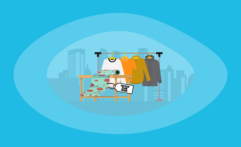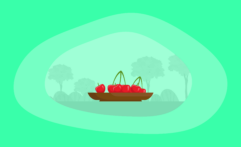20 Most Sustainable European Clothing Brands: The Conscious Consumer’s Guide
Impactful Ninja is reader-supported. When you buy through links on our site, we may earn an affiliate commission.
Learn more
Learn more
.
Hey fellow impactful ninja ? You may have noticed that Impactful Ninja is all about providing helpful information to make a positive impact on the world and society. And that we love to link back to where we found all the information for each of our posts. Most of these links are informational-based for you to check out their primary sources with one click. But some of these links are so-called "affiliate links" to products that we recommend. First and foremost, because we believe that they add value to you. For example, when we wrote a post about the environmental impact of long showers, we came across an EPA recommendation to use WaterSense showerheads. So we linked to where you can find them. Or, for many of our posts, we also link to our favorite books on that topic so that you can get a much more holistic overview than one single blog post could provide. And when there is an affiliate program for these products, we sign up for it. For example, as Amazon Associates, we earn from qualifying purchases. First, and most importantly, we still only recommend products that we believe add value for you. When you buy something through one of our affiliate links, we may earn a small commission - but at no additional costs to you. And when you buy something through a link that is not an affiliate link, we won’t receive any commission but we’ll still be happy to have helped you. When we find products that we believe add value to you and the seller has an affiliate program, we sign up for it. When you buy something through one of our affiliate links, we may earn a small commission (at no extra costs to you). And at this point in time, all money is reinvested in sharing the most helpful content with you. This includes all operating costs for running this site and the content creation itself. You may have noticed by the way Impactful Ninja is operated that money is not the driving factor behind it. It is a passion project of mine and I love to share helpful information with you to make a positive impact on the world and society. However, it's a project in that I invest a lot of time and also quite some money. Eventually, my dream is to one day turn this passion project into my full-time job and provide even more helpful information. But that's still a long time to go. Stay impactful,Affiliate Disclosure
Why do we add these product links?
What do these affiliate links mean for you?
What do these affiliate links mean for us?
What does this mean for me personally?
![]()
Amid growing concerns about the textile industry’s environmental impact, there is pressure to find greener clothes for your wardrobe. And as modern supply chains for clothing tend to spread out all over the world, there is an argument to be made for lowering the impact of buying clothes by sticking with brands closer to home. So, we had to ask: Which are the most sustainable European clothing brands?
The most sustainable European clothing brands are Organic Basics, Ecoalf, and Rifò, which prioritize low-impact materials while striving for circularity. In addition, Underprotection and MUD Jeans reduce textile waste by facilitating the reselling of pre-loved clothing items and leasing garments.
Whether you are searching for a winter jacket or a set of lingerie made in Europe to add to your wardrobe without negatively impacting the soil, the water, the animals, and other people, there is a brand for you. So, let’s keep reading to learn more about the most sustainable European clothing brands and how they ensure sustainable, ethical practices.
Here’s How Sustainable European Clothing Brands Generally Are
The geographical journey of garments often plays a big role in their sustainability because it affects many social and ecological aspects of a product’s life-cycle, from the treatment of textile workers to the use of chemicals.
“Sustainable: The ability to be maintained at a certain rate or level | Avoidance of the depletion of natural resources in order to maintain an ecological balance”
Oxford Dictionary
To understand the sustainability of European clothing, we’ve assessed the life-cycle and each stage’s sustainability. This life-cycle assessment (LCA) is a method to evaluate the environmental impacts of products and materials. Here’s a quick summary of our LCA of European clothing!
Here’s How We Selected the Most Sustainable European Clothing Brands
The brands on this list were chosen based on their commitment and actions to promote sustainable practices while reducing the environmental impacts of the textile industry.
They are transparent about their materials, processes, and workforce management within their supply chain.
Some brands focus their efforts on reducing waste and optimizing natural resources while others strive to reduce the carbon footprint of their clothes.
All of these brands share the commitment to reshape the textile industry toward a more sustainable and Earth-friendly sector.
These Are the 20 Most Sustainable European Clothing Brands
Most Sustainable European Clothing Brands
Overall, these European clothing brands are sustainable. Yet, they take various approaches to reduce environmental impacts and uphold ethical standards. Let’s dive into each brand and find out more.
Organic Basics: A Danish Carbon Neutral Brand Creating Underwear, Activewear, and Everyday Essentials

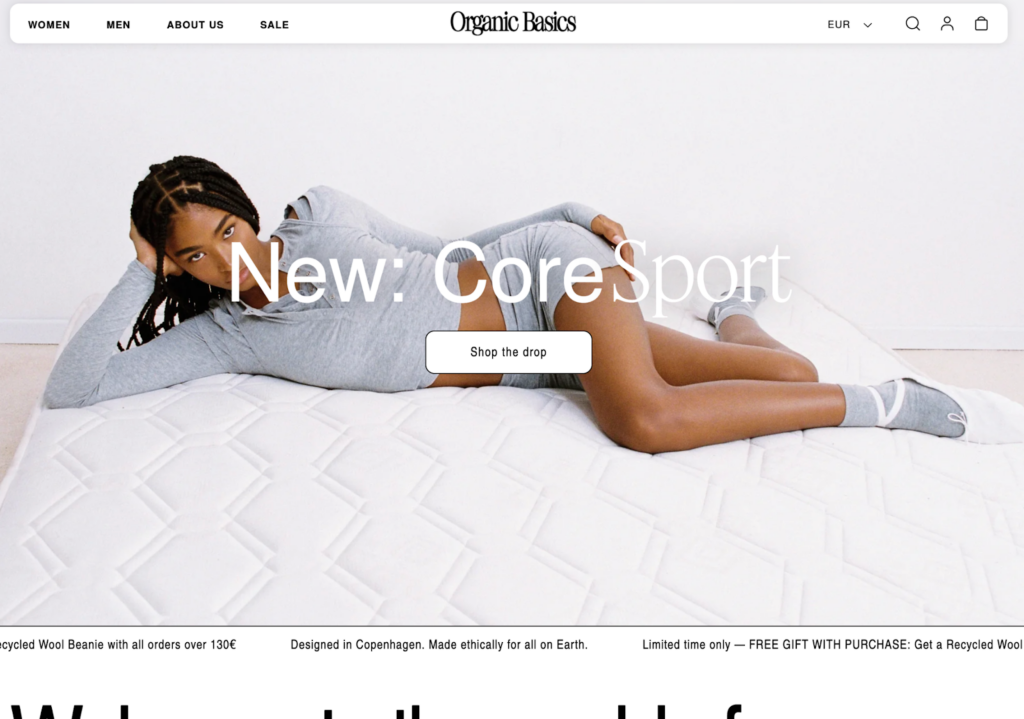
“We make our basics to be both Earth- and people-friendly — carefully choosing materials and fabrics that care for our environment, only partnering with factories that consider their impact too, and designing all the basics for all bodies.”
Organic Basics
🌎
How do they ensure their sustainability?
Organic Basics promotes sustainability by choosing fabrics based on their environmental footprint and lifetime durability. Their clothes are made with organic fabrics (cotton certified by the Global Organic Textile Standard), low-impact textiles (TENCEL™ Lyocell certified by the STANDARD 100 by OEKO-TEX®), or recycled materials (recycled wool, recycled cotton, and recycled nylon). They use a small percentage of elastane (spandex) in some garments to extend the products’ longevity, which ultimately extends the lifespan. Organic Basics is fully transparent about the impact of their products, enabling consumers to understand their share in using the clothes. Organic Basics partners with Made2Flow, which calculates their emissions, and One Carbon World, which helps them reduce and offset all their emissions. Finally, they are also a B Corporation.
🌐
How do they ensure their ethics?
Organic Basics works only with trusted, certified factory partners, who ensure that their workplace is free of child labor and forced labor and that their workers enjoy a safe working space, earn a living wage, and benefit from employee perks like free lunches and childcare. They show full transparency of the location and practices in their factories. Organic Basics also audits or visits most of their suppliers.
🤝
Are they part of any giving-back programs?
Organic Basics donates 1% of the value of all orders to sustainable projects. Their partnership with Beam Impact enables consumers to choose where their 1% donation will go, at no extra cost to the consumers, to support local charities that help Nature Conservation, Ocean Conservation, Rewilding, or Sustainability & Gender Equity.
🛍️
What is their product range?
- Best for: womenswear, menswear
- Product range: underwear, bras, bottoms, T-shirts, tops, sweatshirts, hoodies, knitwear dresses, swimwear, socks, plus-size
- Price range: $$$
- Size range: XXS–XXL
Ecoalf: Spanish Clothing Brand Committing to Recycling Waste and Cleaning the Environment

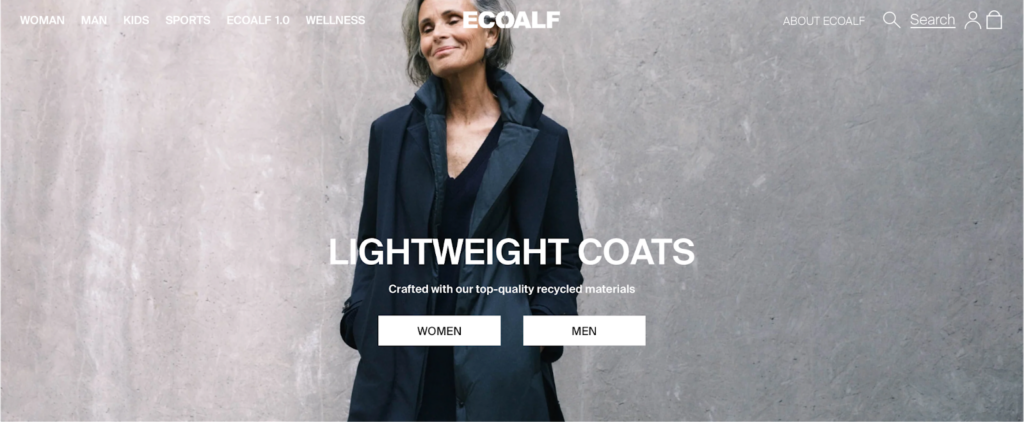
“I believe the time when fashion was just about looking good is over. More than ever it has to be about doing what is right and feeling good about it.”
Javier Goyeneche, founder of Ecoalf
🌎
How do they ensure their sustainability?
Ecoalf’s commitment to sustainability is evident in their innovative recycling practices. They minimize the use of natural resources by using mainly waste as raw materials, collecting and transforming discarded materials into recycled fabrics like recycled polyester, recycled cotton, recycled wool, and recycled cashmere. In 2023, they launched their first 100% recycled cotton collection that can be recycled again to achieve circularity. In 2021, 74% of the materials used by Ecoalf were recovered from waste, saving 1,377 tons of CO₂. In combination with recycled fabrics, Ecoalf uses a small percentage of low-impact natural fabrics, such as linen and kapok. Ecoalf is also Bluesign® and B Corporation certified.
🌐
How do they ensure their ethics?
Ecoalf ensures their ethics by protecting their workers and the environment. In particular, they ensure there are safe and fair working conditions in their supply chain by mandating a Code of Conduct, an Equality Scheme, a Crime Prevention Handbook, a Disciplinary System, and a Bullying at Work Protocol. Additionally, they run many campaigns to raise awareness of the state of our oceans and earth-damaging consumerism habits.
🤝
Are they part of any giving-back programs?
Ecoalf actively participates in giving-back programs. The Ecoalf Foundation was founded to cleanse the oceans of marine waste with the help of the fishing industry while giving a second life to plastic waste through recycling and closing the loop. They achieve this through their “Upcycling the Oceans” projects. In 2021, Ecoalf donated 10% of all Because There’s No Planet B sales to the Ecoalf Foundation to expand the “Upcycling the Oceans” project beyond the Spanish border and into countries like Thailand, Greece, and France. The foundation also partners with Biotherm to set up the framework of “Limpia ríos, salva océanos”, a project supported by corporate volunteer days to collect waste and restore the environment. Additionally, Ecoalf’s employees volunteer in various environmental incentives.
🛍️
What is their product range?
- Best for: womenswear, menswear, kidswear
- Product range: shirts, pants, jackets, blazers, hoodies, sweatshirts, tops, blouses, knitwear, T-shirts, sneakers, accessories
- Price range: $$
- Size range: XS–XL
Rifò: Fashionable and High-Quality Italian Garments Made With Recycled and Recyclable Materials
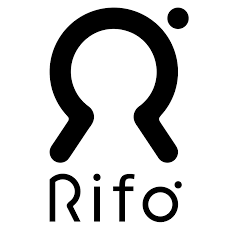
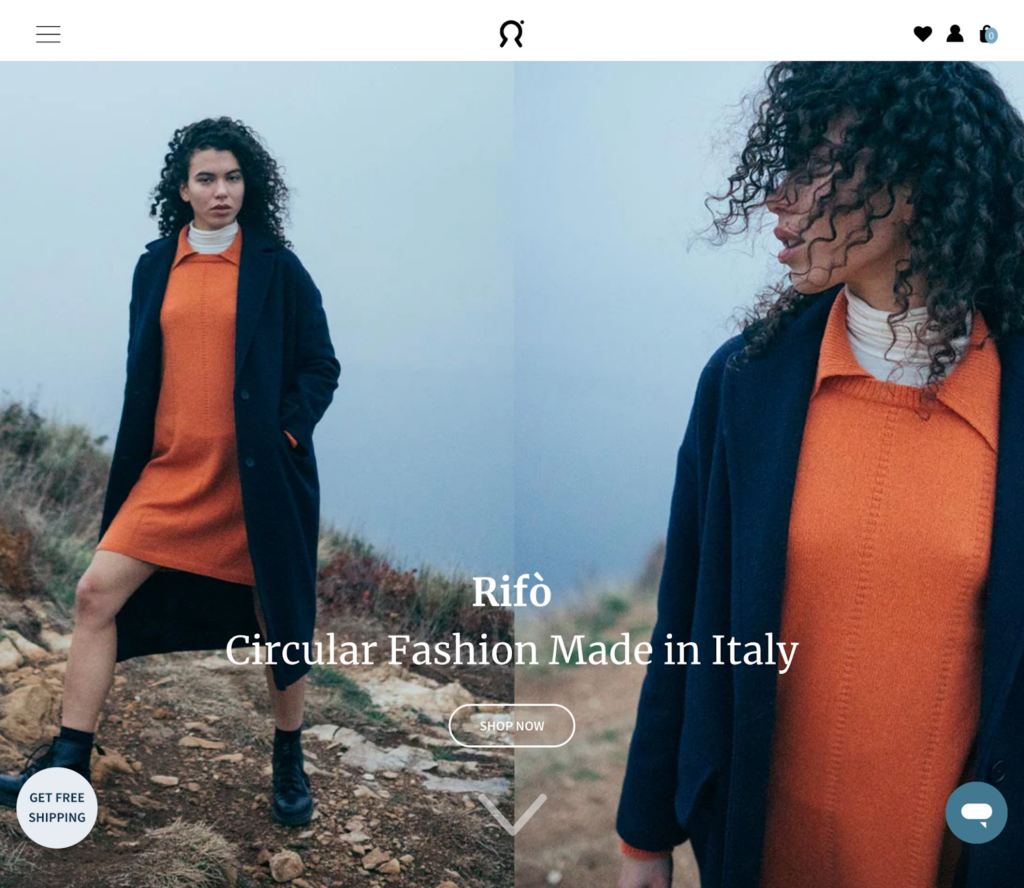
“Our planet is no longer capable of sustaining the rhythms of Fast Fashion: it is necessary to create sustainable alternatives for a better future.”
Rifò
🌎
How do they ensure their sustainability?
Rifò approaches sustainability by committing to using recycled and recyclable fibers. They opt for natural, biodegradable materials composed of at least 50% recycled fibers, such as recycled cashmere, recycled wool, recycled (organic) denim, recycled (organic) cotton, and recycled silk. Their packaging is made with recycled cardboard and is plastic-free. They also embed circularity principles in every step of their products’ life-cycle, meaning not only material sourcing but also designing, manufacturing, and end-of-life. Additionally, Rifò fights textile waste by running a presale system to minimize overproduction and take back used garments to reuse or recycle. Consumers can trade in their pre-loved items for a €10 ($11) discount voucher, using a free-of-charge home pickup service or a drop-off box. In 2022, 14% of the recycled materials used in their clothes were collected directly from their circular service. Rifò also joined the movement to boycott Black Friday’s rampant consumerism. Last but not least, they are B Corporation certified.
🌐
How do they ensure their ethics?
Rifò binds their suppliers with a Code of Conduct covering ILO’s Fundamental Principles and Rights at Work. They also trace most of their supply chain.
🤝
Are they part of any giving-back programs?
Rifò donates €2 ($3) from each purchase on their online store to Nei Nostri Panni, a social impact project to train textile-recycling artisans and spinners who are in vulnerable situations. Additionally, Rifò supported Fashion Revolution by donating part of the sale from their Green Friday’s regenerative cashmere sweater edition.
🛍️
What is their product range?
- Best for: womenswear, menswear, kidswear
- Product range: sweaters, denim, polos, tops, blouses, T-shirts, shorts, plus-size
- Price range: $$
- Size range: XS–XL
Underprotection: Denmark-Based Fashionable and Sustainable Lingerie
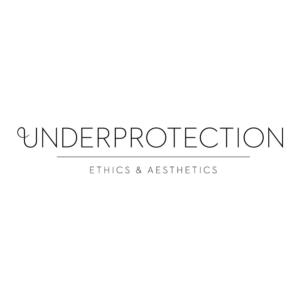
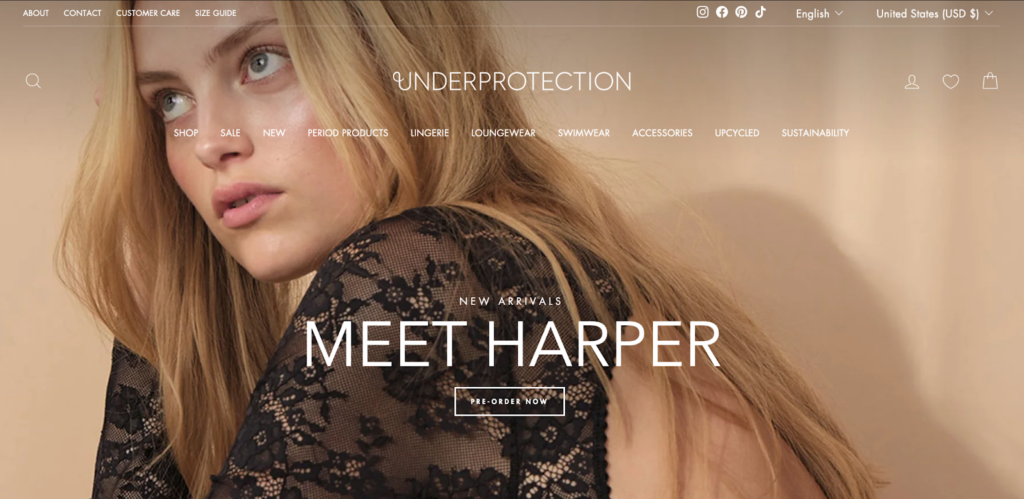
“We always strive to make the most sustainable choices even if it is not necessarily the most economically sensible choice, but for us, it is not only a business, it’s a lifestyle and a belief that the future must and can be greeners. It is our goal to always improve – in everything we do”
Stephan Rosenkilde, Co-Founder of Underprotection
🌎
How do they ensure their sustainability?
Underprotection ensures their sustainability by sourcing low-impact textile and packaging materials, prolonging their garments’ lifespan, and striving toward textile circularity. Firstly, they use a high proportion of eco-friendly fabrics, including TENCELTM Lyocell, organic cotton, recycled wool, and RWS-certified responsible sheep wool. All their synthetic fabrics come from
recycled sources with the Global Recycle Standard certification, be it polyester, nylon, or elastane (spandex). On top of that, Underprotection also has fabrics made by utilizing by-product waste (banana leaves from the fruit industry and sour milk from the milk industry), helping to cut down waste and lower their environmental impacts. Regarding packaging materials, they opt for recycled or biodegradable materials. Secondly, the brand designs their products with quality and durability in mind to make them last, offers guaranteed repairs within the first two years, provides first-aid rewards for customers who fix up items themselves instead of replacing them, and equips consumers with detailed wash and care instructions for various types of fabrics. All these efforts aim to extend the lifespan of a garment and reduce its environmental cost. Thirdly, regarding their efforts toward textile circularity, they have a take-back program to give worn-out Underprotection pieces a second life, and an Upcycled collection that utilizes returned Underprotection products through their Take-back program, which covers leftover fabrics and discarded items. Last but not least, their main supplier uses solar-powered energy and harvests rainwater.
🌐
How do they ensure their ethics?
Underprotection ensures their ethics by holding a transparent and responsible supply chain. They bind their suppliers with a Code of Conduct, which covers all of the ILO’s Fundamental Principles and Rights at Work. Their suppliers have certifications that guarantee proper working conditions and a fair wage, including WRAP (Worldwide Responsible Accredited Production), Sedex, GOTS, and BSCI (Business Social Compliance Initiative). Underprotection also audits most of the final stage of production.
🤝
Are they part of any giving-back programs?
Underprotection partners with various organizations to give back to underprivileged communities and the Earth. For example, they plant a fixed 150 trees every month in their partnership with Treeapp. Another example is their partnership with the ReSea Project, an organization on a mission to end the ocean plastic crisis. Part of their sales go to support the cause.
🛍️
What is their product range?
- Best for: womenswear
- Product range: lingerie, loungewear, swimwear
- Price range: $$$
- Size range: XS–XL
MUD Jeans: Quality Dutch Jeans Made Ethically With Organic and Denim
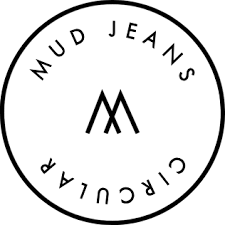
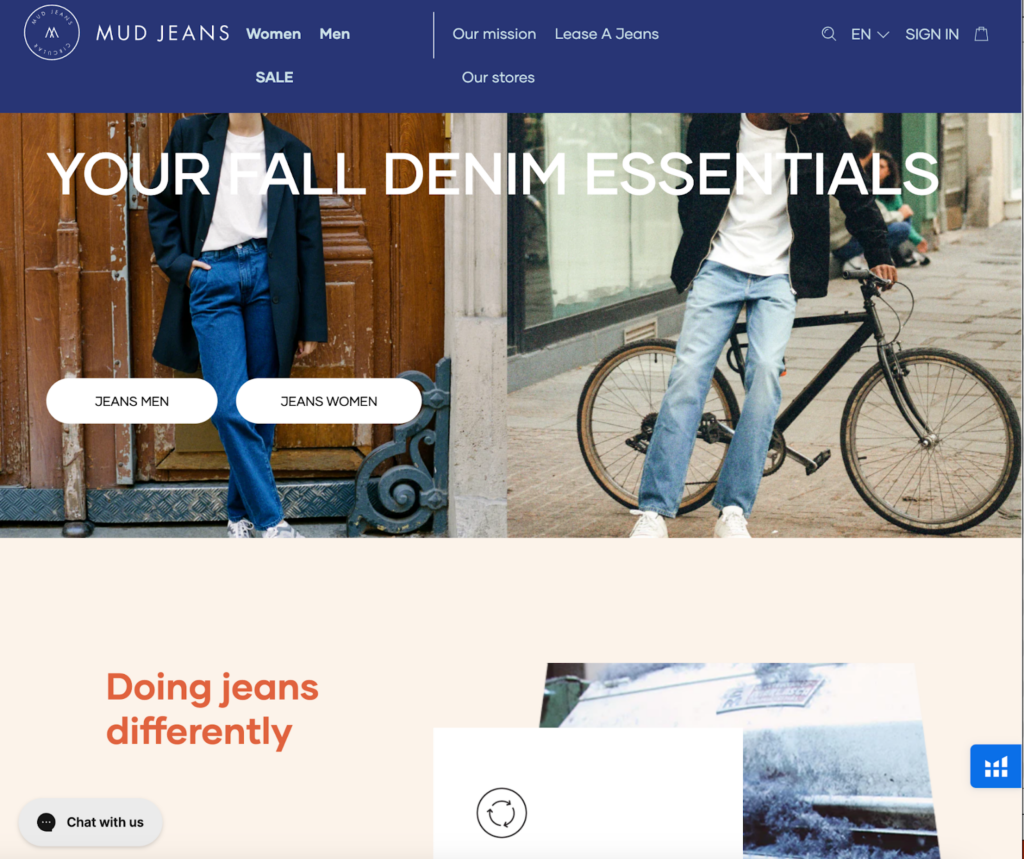
“With our circular philosophy, we want to design our products in a way that they can be reused, recycled and upcycled easily.”
MUD Jeans
🌎
How do they ensure their sustainability?
MUD Jeans prioritizes sustainability by committing circular principles in every step of the life cycle of their denim products, including design, materials, production techniques, and end-of-life. They recycle fabrics and water across the supply chain. Their factory’s laundry also recycles 95% of their water through reverse osmosis. On top of that, most of their jeans are made from a mix of low-impact certified organic cotton, up to 40% post-consumer recycled cotton (recovered from jeans they take back), and a maximum of 2% recycled elastane (also known as spandex). MUD Jeans have also replaced PP spray with Cradle2Cradle indigo dye to make their products toxin-free. Furthermore, they are transparent about the environmental impacts of their clothes by sharing their annual life cycle analysis, which includes the methods they used to lower their water and carbon footprint. Lastly, their “Lease a Jeans” program encourages consumers to own less and recycle more.
🌐
How do they ensure their ethics?
MUD Jeans is fully transparent about their manufacturing processes, maintaining fair conditions for workers. They consciously maintain a small supply chain of three recyclers, three fabric producers, and one jeans manufacturer, enabling clear oversight over who makes their jeans, how, and under what conditions. They uphold all their main supply chain partners to their Code of Conduct, which covers the ILO’s Four Fundamental Freedoms principles.
🤝
Are they part of any giving-back programs?
MUD Jeans partners with Justdiggit to regenerate trees and revive deforested areas. For every pair of jeans sent back to them, they donate that pair to Justdiggit to restore one tree. The nonprofit organization uses a special pruning technique to regenerate forgotten tree stumps in previously deforested areas in Sub-Saharan Africa, bringing back trees, increasing carbon sequestration, cooling down the site, increasing water retention, and promoting biodiversity.
🛍️
What is their product range?
- Best for: womenswear, menswear
- Product range: jeans, jackets, shirts, shorts, skirts, accessories
- Price range: $$
- Size range: XS–XL
ARMEDANGELS: Sustainable Clothing Brand From Germany

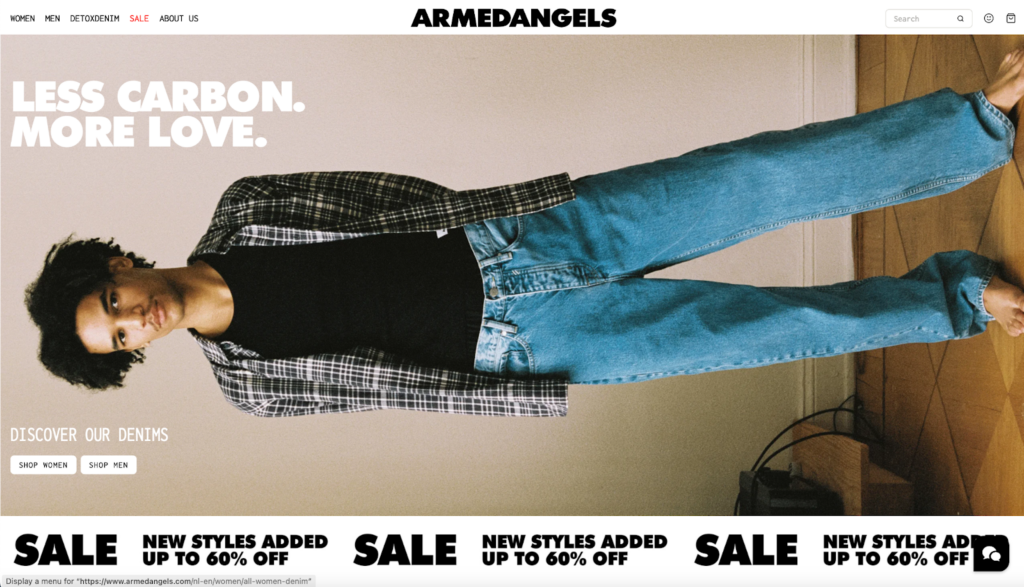
“So starting out with the humble tee, we took our oath against wage slavery, chemical shortcuts, and mass-producing pure crap, and transformed ourselves into one of the first clothing brands in all the land to put people and planet first.”
ARMEDANGELS
🌎
How do they ensure their sustainability?
ARMEDANGELS ensures sustainability by reducing carbon footprints while enabling people to change their lifestyles to fight climate change. The brand innovates to cut down carbon emissions in their supply chain, starting with sourcing a high proportion of eco-friendly materials. Specifically, they use GOTS-certified organic cotton fabrics, GRS-certified recycled fabrics, GOTS-and RWS-certified organic wool fabrics, and FSC/PEFC-certified wood-based fabrics like TENCELTM Modal. Additionally, ARMEDANGELS chooses materials with the lowest carbon footprint possible, for example, opting for modal and lyocell over silk or natural fabrics over fossil-based synthetic fabrics while increasing recycled content, such as recycled wool and recycled cotton. For example, within a year, the share of recycled cotton in their DetoxDenim jeans increased from 5% to 37%, with some jeans in the collection containing 100% recycled cotton. Lastly, ARMEDANGELS’s efforts to encourage lifestyle change include care and repair guides to keep garments in circulation longer. They also have a resale platform that facilitates traded-in items to be sold again as second-hand clothes or recycled as fibers for new clothes.
🌐
How do they ensure their ethics?
ARMEDANGELS ensures their ethics by only working with trusted partners to deliver decent wages and workers’ safety. They directly and actively monitor all their suppliers and the suppliers’ nominated subcontractors via an on-site and online Internal Due Diligence Check and Self-Assessment, external audits by Fair Wear Foundation (FWF), Global Organic Textile Standard and third-party audits, continuous support, and tailored training programs by third parties. On top of that, ARMEDANGELS ensures payment of a living wage in part of their supply chain and pays a markup where they notice wage issues via the living wage project. Most importantly, they are fully transparent about the journey from raw material to their products, especially where people and animals are involved, and the impacts of their actions.
🤝
Are they part of any giving-back programs?
ARMEDANGELS raises funds by donating part of their sales to support various organizations and campaigns. For example, during the COVID-19 pandemic, they raised €745.800 ($790,883.61 USD) for Doctors Without Borders, facilitating isolation wards, COVID-19 clinics, and protective clothing for medical professionals worldwide. Other fundraising projects include supporting the climate movement with German Zero and the Climate Emergency Fund, fighting for equality with UN Women, advocating for fair payment and safe working conditions for Bangladeshi garment workers with the National Garment Workers Federation, and rescuing refugees in the Mediterranean Sea with Sea-Watch.
🛍️
What is their product range?
- Best for: kidswear, menswear
- Product range: denim jeans, jackets, jumpsuits, shorts, skirts, T-shirts
- Price range: $$
- Size range: XS–XXL
ZEROBARRACENTO: Zero-Waste, Gender-Neutral, and Timeless Italian Clothing
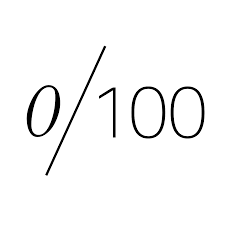
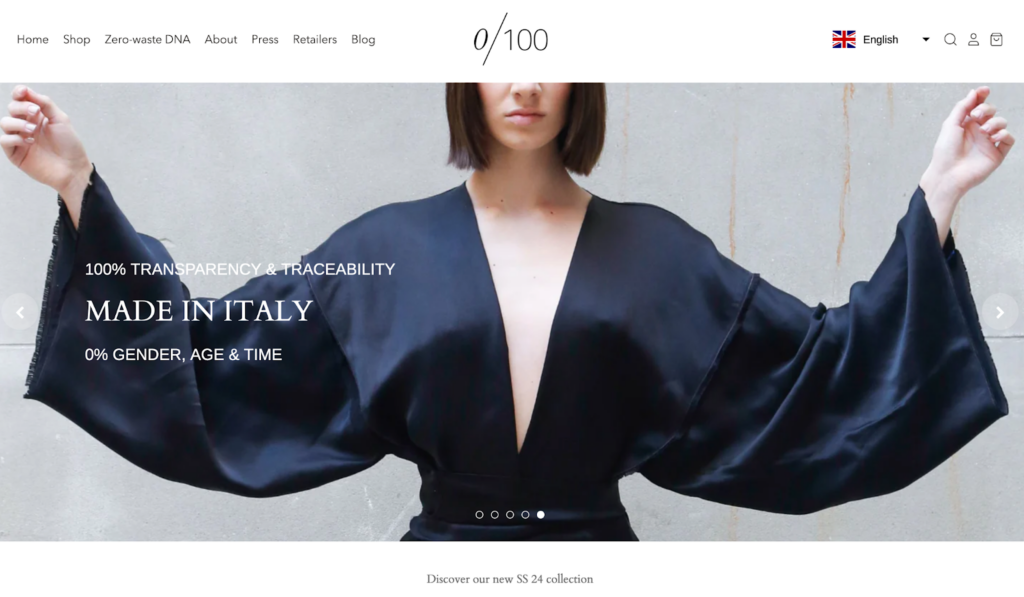
“ZEROBARRACENTO does not judge but welcomes, it does not exclude but includes, it does not waste but enhances. The brand is founded on the idea of creating garments that last and can can pass from mother to daughter, from generations to generations”
Camilla Carrara, Founder of ZEROBARRACENTO
🌎
How do they ensure their sustainability?
ZEROBARRACENTO places sustainability at their core by combining eco-friendly materials with zero-waste patterns to create garments. Firstly, they source a high proportion of lower-impact materials, including Re.VerSo™, a recycled wool fabric with the Global Recycled Standard certification; Newlife™, a unique and certified yarn engineered from 100% post-consumer bottles sourced, processed and spun into yarn exclusively made in Italy with the STANDARD 100 by OEKO-TEX® and the Global Recycled Standard certifications; ECOTEC®, an GRS-certified recycled cotton yarn; and Bemberg™, a cupro fabric made by Asahi Kasei. Regarding packaging materials, ZEROBARRACENTO lowers their impact by opting for compostable mailers and eco-friendly, FSC-certified tissues and stickers. Secondly, they use an innovative design technique that enables using the fabric in its entirety, with no waste at the design stage of a garment (the industry standard is 15% waste).
🌐
How do they ensure their ethics?
ZEROBARRACENTO is transparent about their supply chain. They publicly share the list of their suppliers. As well, their final production stage happens in Italy, a medium-risk country for labor abuse.
🤝
Are they part of any giving-back programs?
ZEROBARRACENTO donates 1.5% of each purchase to Fondazione Umberto Veronesi, supporting scientific research in the oncology field.
🛍️
What is their product range?
- Best for: gender neutral
- Product range: cultrite, denim, jackets, coats, knitwear, kimonos, blouses, skirts, shorts, accessories
- Price range: $$$
- Size range: S–L
Nudie Jeans: Swedish Sustainable Denim Jeans Come With Free Repair for Life

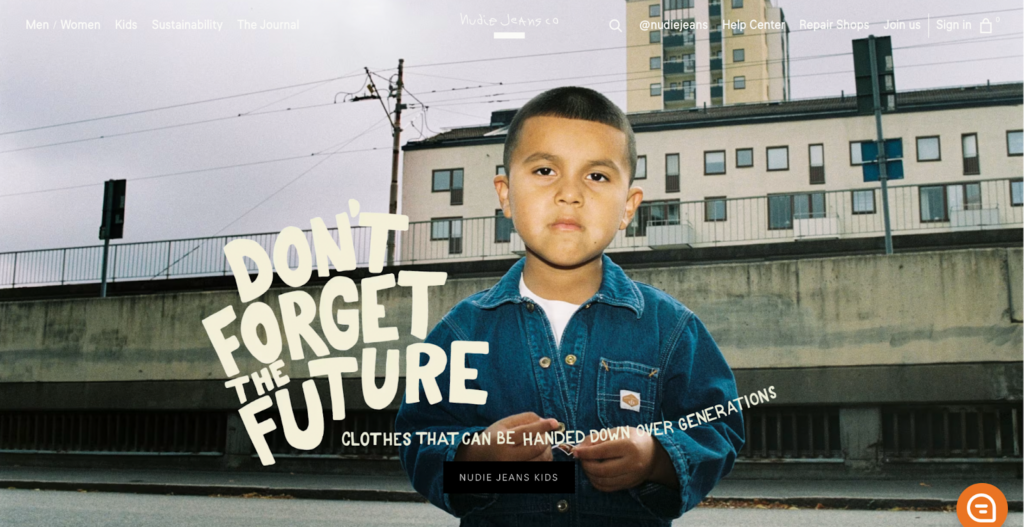
“When we started Nudie Jeans in 2001, we decided that environmental awareness and human rights would permeate everything we did.”
Maria Erixon, Co-Founder of Nudie Jeans
🌎
How do they ensure their sustainability?
Nudie Jeans promotes sustainability by sourcing a high proportion of low-impact materials, including organic cotton and recycled cotton. Of all fibers they used in 2022, 95.6% were organic, certified, or recycled fibers. 2022 was the sixth full year in which Nudie Jeans used exclusively certified organic fabrics in all their cotton products. Additionally, they ensure their sustainability by using renewable energy in their supply chain to reduce their carbon footprint. On top of that, Nudie Jeans strives to extend the life-cycle of denim jeans with initiatives to repair, reuse, and recycle. They offer free repair of Nudie Jeans no matter when or where they are bought at one of their Repair Shop or Repair Partner or by sending jeans owners a free DIY repair kit. In 2022, they repaired 65,386 pairs of jeans for free. Nudie Jeans also offers a 20% discount after you send in your pre-loved jeans to be washed, repaired, and resold in their Reuse range. In 2022, they sold 3,984 pairs of Reuse jeans. When repairing and reusing are not possible, they put the fabrics, reclaimed from used garments, production seconds, and leftovers, into recycling projects.
🌐
How do they ensure their ethics?
Nudie Jeans strives to be as transparent as possible about how their products are made. The full list of all their suppliers is available for download on their website. Most of these suppliers are certified by Fair Wear Foundation, Fairtrade International – Small Producers Organisations, Global Organic Textile Standard (GOTS), and Sedex Members Ethical Trade Audit – SMETA Best Practice Guidance, ensuring living wages and fair working conditions for workers making Nudie Jeans denim jeans.
🤝
Are they part of any giving-back programs?
Nudie Jeans has donated directly to various charity initiatives. For example, in 2022, they made monetary and jeans donations to UNICEF (to Ukrainian children and their families), Sustainably Crafted Clothing, Räddningsmissionen (The Rescue Mission), Thread Together, and Whitechapel School.
🛍️
What is their product range?
- Best for: menswear, womenswear
- Product range: shirts, hats, scarves, pants, coats, jackets, blazers
- Price range: $$$
- Size range: XS–XL
ASKET: Timeless Clothes Made Under Full Transparency and With Life-Cycle Responsibility
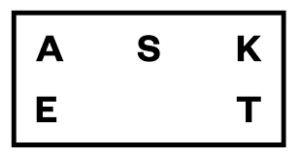
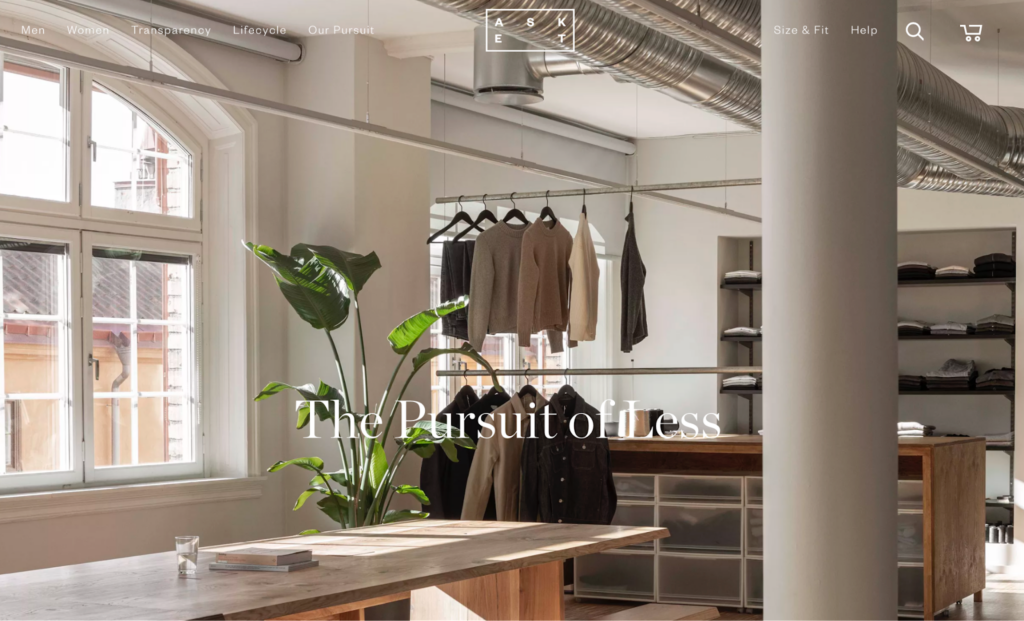
“Our mission is to end overconsumption and restore value to the clothing industry.” Jakob
Dworsky, founder of ASKET
🌎
How do they ensure their sustainability?
ASKET ensures sustainability by reducing waste and using less energy throughout the life-cycle of their garments. They tackle the textile waste problem with their Repair Program, which helps keep clothes last longer, and their Revival Program, which diverts used garments from landfills to be repaired, renewed, resold, or recycled. On top of that, they use various recycled fabrics, including GRS-certified recycled cashmere, recycled wool, recycled cotton, and recycled synthetic fabrics. ASKET also runs a Care Program, helping consumers keep their garments fresh longer while using less energy, lowering the environmental impact of the usage stage. Additionally, ASKET’s collection includes eco-friendly materials such as organic cotton, linen, and TENCEL™ lyocell. Lastly, in an effort to encourage consumers to buy and waste less, they are fully transparent about the environmental impact of their clothes.
🌐
How do they ensure their ethics?
ASKET maintains ethics through fair labor practices, responsible sourcing, and a commitment to transparency in their supply chain. In 2022, their average traceability score across their entire collection was 96.0%. Regarding animal rights, they follow the Responsible Wool Standard, appropriately addressing sheep’s welfare and the land they graze on. Additionally, they do not use wool from mulesed sheep.
🤝
Are they part of any giving-back programs?
ASKET is not known to be part of any giving-back programs.
🛍️
What is their product range?
- Best for: high-quality, essential, versatile wardrobe pieces
- Product range: tops, sweaters, pants, chinos, jackets, coats, socks, underwear
- Price range: $$$
- Size range: XS–XXL
the Blue suit: Italian-Made Suits by an Ethical Swiss Luxury Brand
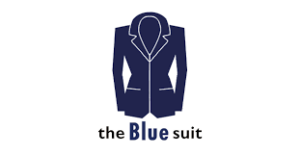
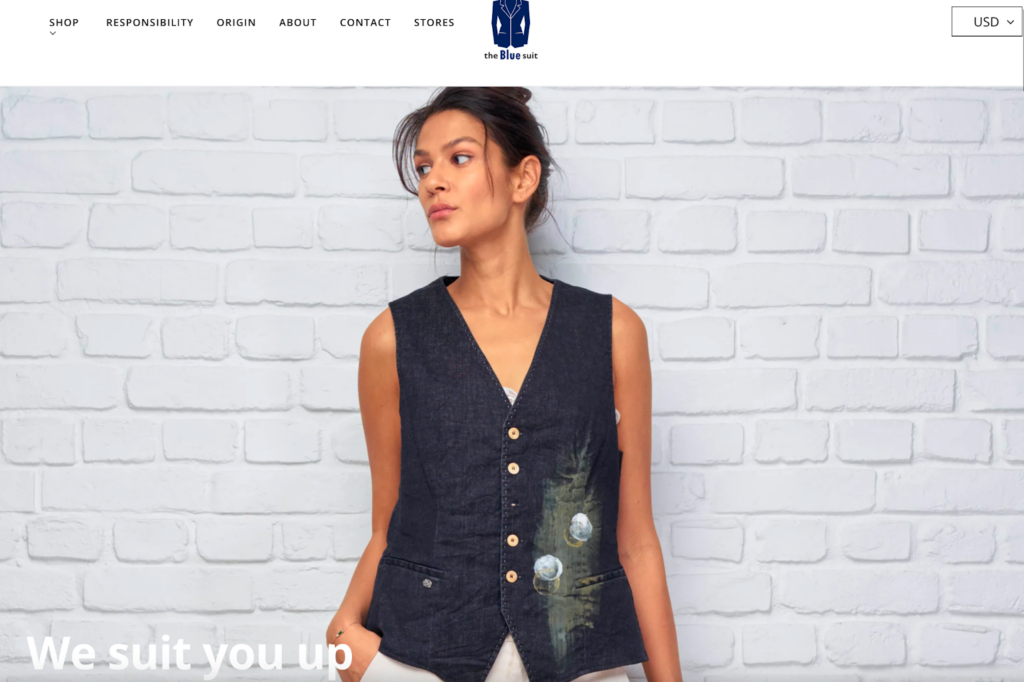
“Besides using new organic materials we also have to re-think the use of existing materials to preserve and regenerate natural resources.”
the Blue suit
🌎
How do they ensure their sustainability?
the Blue suit ensures their sustainability by sourcing low-impact materials and striving for circularity in fashion. Firstly, they source a high proportion of organic textile materials, including organic cotton. Specifically, 90% of their fabrics are GOTS-certified. Their lyocell-based denim fabrics are made with plant-derived cellulose and require 50% less rinsing water using the E-Flow Technology than the conventional denim rinsing technique. In 2023, they started using SeaCell™ seaweed-based, biodegradable materials certified by STANDARD 100 by OEKO-TEX®. Regarding trims and components, the Blue suit sources untreated wooden buttons and nickel-free pins. Secondly, the brand strives for circularity in fashion by designing for longevity and recycling at end-of-life.
🌐
How do they ensure their ethics?
the Blue suit is committed to complete supply chain transparency. They use Retraced‘s Bottom-Up Traceability Solution to enable customers to track the journey of their garment through fabric processing, trims and components, manufacturing, and retailers. Customers can also view social and ethical certifications associated with garments in their Cradle to Cradle Certified collection. Furthermore, the Blue suit holds their final production stage in Italy, a medium-risk country for labor abuse. Lastly, they trace and audit most of their suppliers.
🤝
Are they part of any giving-back programs?
the Blue suit is not known to be part of any giving-back programs.
🛍️
What is their product range?
- Best for: womenswear
- Product range: jackets, pants, tops, overalls, dresses, skirts
- Price range: $$$
- Size range: XS–XL
VAUDE: Sustainable Outdoor Gear and Activewear From the Alps

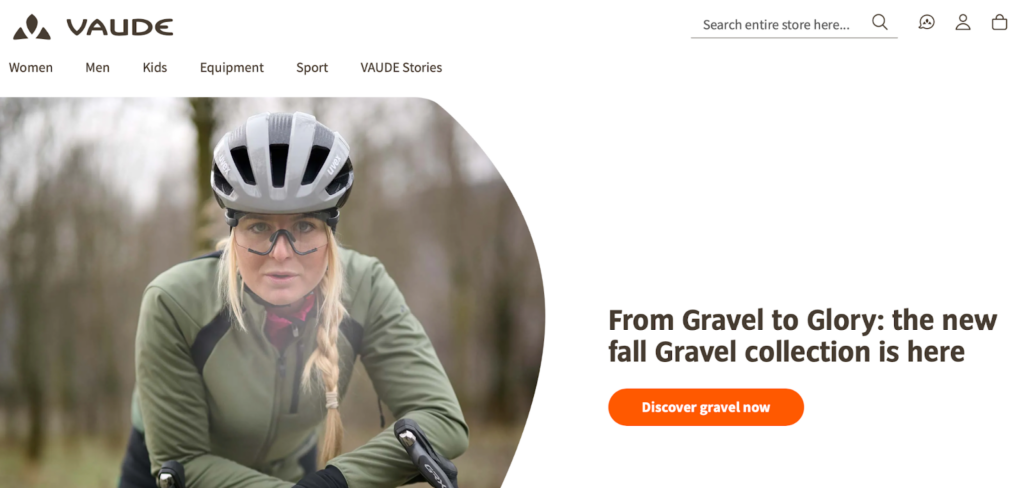
“We design with a focus on minimal material consumption, try to avoid waste and design products that are timeless, durable and repairable.”
VAUDE
🌎
How do they ensure their sustainability?
VAUDE prioritizes sustainability by creating a counterbalance to resource-consuming lifestyles. They achieve that by making durable and versatile products for life, minimizing waste during manufacturing, and enabling longer product lifespan with maintaining, repairing, donating, and upcycling guidance. VAUDE opts for materials that combine technical performance and ecological responsibility. An example of this is their use of merino wool, a natural fiber suitable for a warm and water-repellent protective layer that is ideal for mountain sports. Meanwhile, they lower the impact of this fabric by adhering to the Responsible Wool Standard and the Global Organic Textile Standard for virgin organic wool and increasing the content of GRS-certified recycled wool in their collection. Furthermore, their products have been certified by Bluesign® and Green Button. Regarding their impact, the brand sets science-based climate goals to reduce global emissions as quickly as possible, aligning with the Paris Agreement’s 1.5 degrees in global warming, and is on track with their target as of October 2022, according to Science Based Targets (SBTi). They achieved that by measuring the total carbon footprint and implementing reduction measures in hotspots like material, energy, and transport. Since the beginning of 2022, VAUDE has been a carbon-neutral company, achieved through fully offsetting their global greenhouse gas emissions in the My Climate’s climate change mitigation project in Vietnam, their most important country of production.
🌐
How do they ensure their ethics?
VAUDE ensures ethical practices for both humans and animals involved in their operation. They work with the Fair Wear Foundation to monitor their final stage of production, ensuring safe working conditions and fair wages for factory workers. They also audit 100% of their producers in high-risk countries. Additionally, VAUDE has a basic policy to support diversity and inclusion in their direct operations and supply chain. Regarding animal rights, they follow the Responsible Wool Standard, appropriately addressing sheep’s welfare and the land they graze on.
🤝
Are they part of any giving-back programs?
VAUDE donates the products that can’t be repaired but are still perfectly functional to FairWertung. In 2021, VAUDE donated products with a merchandise value of approximately €339,000 (approximately $375,000 USD) to the network, which makes clothes affordable via charity shops or second-hand stores.
🛍️
What is their product range?
- Best for: sportswear (cycling, hiking, skiing) and urban outdoor clothes for women, men, and kids
- Product range: jackets, hoodies, sweaters, shirts, vests, pants, shorts, skirts, functional underwear
- Price range: $$$
- Size range: XS–XXXL
Tripulse: Swedish Activewear Made Sustainable With Certified Eucalyptus Wood Fiber

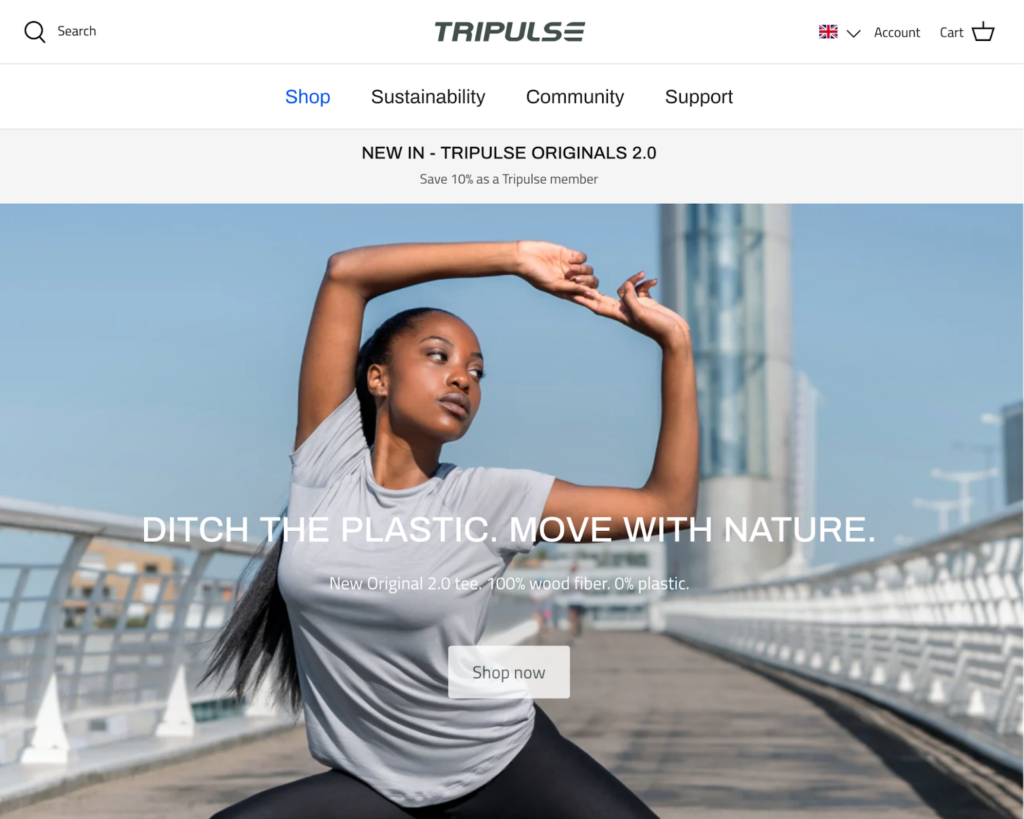
“Sustainability is at the heart of everything we do and of every decision we make. It’s part of our DNA.”
Franziska Mesche, Founder of Tripulse
🌎
How do they ensure their sustainability?
Tripulse ensures sustainability by sourcing low-impact materials, reducing waste, and overcompensating their carbon emission to be climate-positive. Firstly, they use a high proportion of TENCELTM Lyocell made with certified eucalyptus wood fibers. Tripulse also opts for ROICA™ V550, a more eco-friendly stretch alternative to spandex (elastane), for the stretch element necessary in gym leggings. Furthermore, the elastane found in a small percentage of Tripulse’s Power III fabric blend consumes less energy, requires lower CO2 emissions than conventional elastane, and has various sustainability certifications (Bluesign®, OEKO-TEX®, and REACH). On top of that, they use organic cotton and natural rubber for elements like care labels and waistbands. Secondly, Tripulse reduces waste by designing timeless, versatile, and multifunctional garments that are durable and long-lasting, using recycled and recyclable packaging materials, and keeping clothing with minor blemishes, prototypes, or returned and refreshed clothing in circulation with their ZeroWaste Shop. Last but not least, the brand holds climate action at the center of their operation, measuring, reducing, offsetting, and overcompensating their carbon emissions. On top of using low-carbon materials and reducing waste, they also offset more than their emissions in projects preventing deforestation in biodiverse areas.
🌐
How do they ensure their ethics?
Tripulse ensures their ethics by partnering with a factory certified by the Global Organic Textile Standards and paying a living wage in the final stage of their production. They are also transparent about the rest of their supply chain, publicly sharing their suppliers for various components.
🤝
Are they part of any giving-back programs?
Tripulse plants a tree for every product purchased via their partnership with One Tree Planted.
🛍️
What is their product range?
- Best for: womenswear
- Product range: leggings, tops, T-shirts, tank tops
- Price range: $$$
- Size range: XXS–3XL
Dedicated: Swedish Streetwear Brand Dedicated To Doing Good

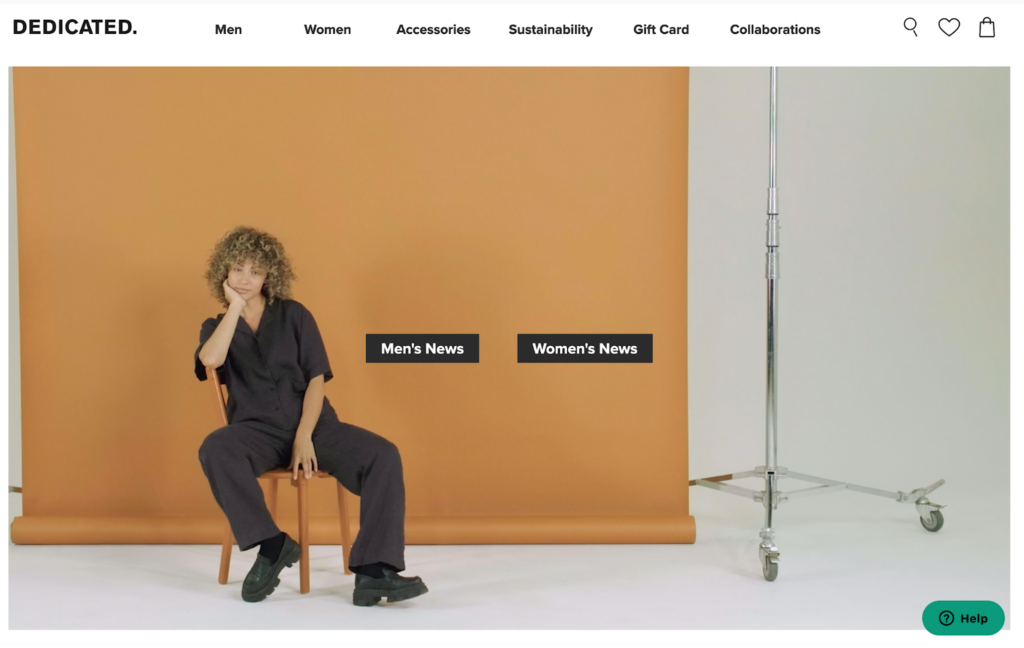
“Our sustainable clothing brand is built on transparency, honesty, and sticking true to our values.”
Dedicated
🌎
How do they ensure their sustainability?
Dedicated’s sustainability efforts focus on sourcing low-impact materials. They use a high proportion of eco-friendly fabrics, including organic cotton certified by Fairtrade and the Global Organic Textile Standard, hemp, TENCELTM Lyocell, recycled wool, and recycled polyester. Specifically, 64% of the cotton used in their 2022 collection was certified with Fairtrade and GOTS. Regarding packaging materials, Dedicated reduces their impact by opting for bags and boxes with high recycled content. In 2022, 63,2 % of their packaging was front recycled content. Specifically, they use GRS-certified poly bags made of 100% recycled plastics. Furthermore, the brand partners with ClimatePartner to map their Scope 1, 2, and 3 carbon emissions. In 2022, they identified the manufacturing stage as their hotspot for emissions and worked toward finding reduction solutions with their suppliers. Dedicated also takes other approaches to reduce their climate impact, including prioritizing boat shipments for bulk production and installing insulation for their premises.
🌐
How do they ensure their ethics?
Dedicated ensures their ethics by being transparent about their supply chain. They trace most of their supply chain and work only with manufacturing partners that share the same values, and that are certified by reliable and legitimate social standards. Their supply chain holds the following standards: the Global Recycle Standard, SA8000, WRAP, and SEDEX. In 2022, 78% of their manufacturers were audited and visited. Dedicated also has a Code of Conduct that covers four of the ILO’s Fundamental Principles and Rights at Work.
🤝
Are they part of any giving-back programs?
Dedicated is not known to be part of any giving-back programs.
🛍️
What is their product range?
- Best for: womenswear, menswear
- Product range: T-shirts, tops, dresses, knitwear, sweatshirts, skirts, swimwear, shirts, blouses, pants, shorts, jumpsuits, jackets, socks, underwear, accessories
- Price range: $$
- Size range: XS–2XL
Opera Campi: Italian-Made, Innovative Hemp Fabrics Offset by Tree Planting
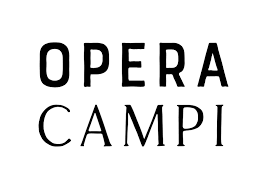
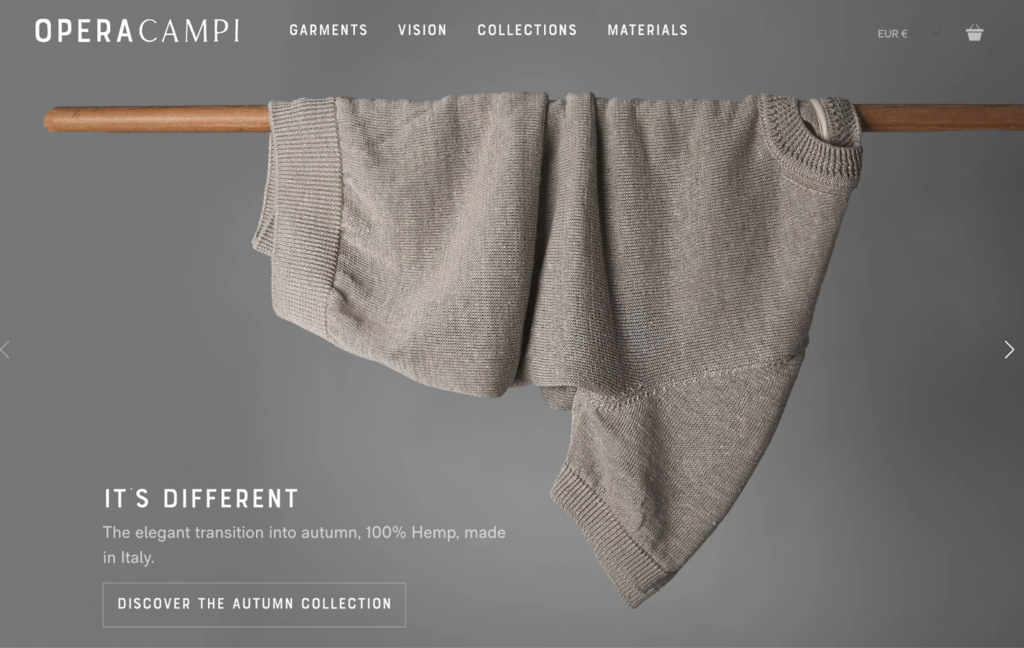
“We pioneer a radical concept of sustainability based on flexible production, new hemp-based material, minimal packaging and more.”
Opera Campi
🌎
How do they ensure their sustainability?
Opera Campi ensures their sustainability by making innovative low-impact fabrics based on hemp fibers, in consideration of the plant’s high carbon sequestration potential and low irrigation requirement. Their hemp T-shirt’s emission is less than 3kg CO2, which is half of a common cotton T-shirt’s emission. Their Zero Sweater, an undyed hemp knitwear, is carbon-negative (cradle-to-gate). Opera Campi also operates a made-to-order system, preventing fabric waste and saving water. On top of that, they use simple packaging, which is either recyclable or compostable. Additionally, Opera Campi plants two trees for every clothing item ordered, offsetting carbon emissions during the manufacturing and transporting stages.
🌐
How do they ensure their ethics?
Opera Campi engineers, designs, and produces their hemp clothing in Italy, an EU member country upholding the group standards about fair wages and safe working conditions. They also trace most of their supply chain.
🤝
Are they part of any giving-back programs?
Opera Campi plants two trees for every garment ordered.
🛍️
What is their product range?
- Best for: menswear, womenswear,
- Product range: shirts, pants, jackets, blazers, knitwear, T-shirts, shorts, plus-size
- Price range: $$$
- Size range: XXS–XXXL
Iron Roots: Natural Athletic Apparel From a Dutch Brand
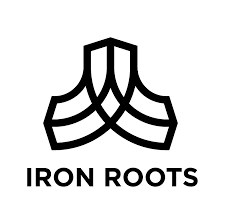
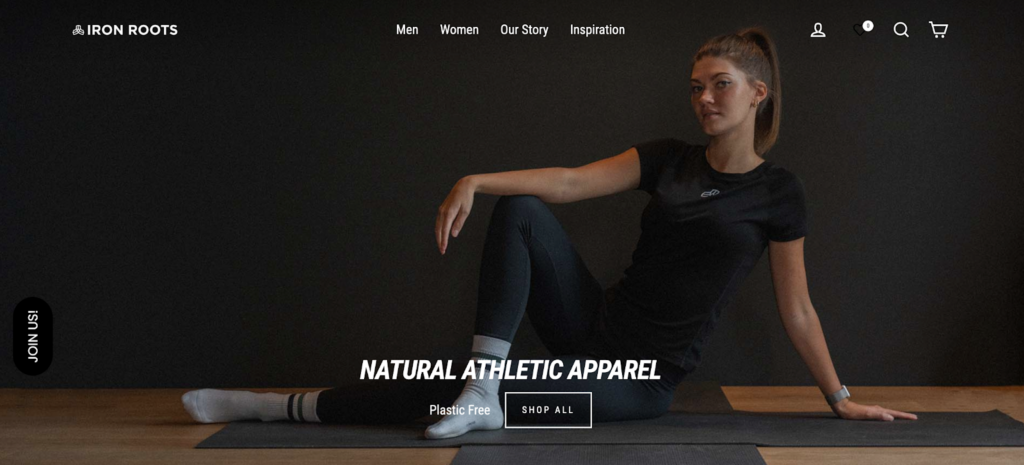
“By combining design, functionality and sustainability, we aim to create the best sportswear.”
Iron Roots
🌎
How do they ensure their sustainability?
Iron Roots prioritizes sustainability by using eco-friendly plant-based textiles, cutting down textile waste, and reducing carbon footprint. Firstly, they source a high proportion of low-impact textiles, including GOTS-certified cotton, hemp, and lyocell (Lenzing‘s TENCEL™ fibers)—three of the most sustainable fabrics. Additionally, all their healthy sportswear is tested for harmful chemicals through OEKO-TEX® certifications. Secondly, Iron Roots minimizes textile waste in multiple ways, such as designing a product from a single fabric, maximizing cutting efficiency, and sometimes using the same fabric for various products. On top of that, they offer a take-back program where customers can return their worn-out Iron Roots apparel for the purpose of recycling it into new products. Lastly, to avoid overproduction, they do not offer seasonal collections. Regarding their carbon footprint, Iron Roots manufactures locally to reduce their transporting carbon emissions and offset all those occurring from shipping in their supply chain.
🌐
How do they ensure their ethics?
Iron Roots traces most of their supply chain. The manufacturing stage happens in GOTS and SMETA-certified factories in Greece, North Macedonia, and Portugal. The factory’s workers are paid living wages that average 1.5–1.7 times the minimum wage in their country.
🤝
Are they part of any giving-back programs?
Iron Roots donates 50% of the profits from the Iron Roots x Sea Shepherd Wood T-shirt sale to Sea Shepherd, helping to protect the oceans.
🛍️
What is their product range?
- Best for: womenswear, menswear
- Product range: activewear, sportswear, hoodies, sweatshirts, accessories
- Price range: $$$
- Size range: XS–XXL
HERTH: Conscious Luxury Silk Wear With GOTS Certification
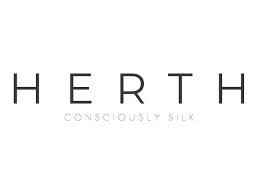
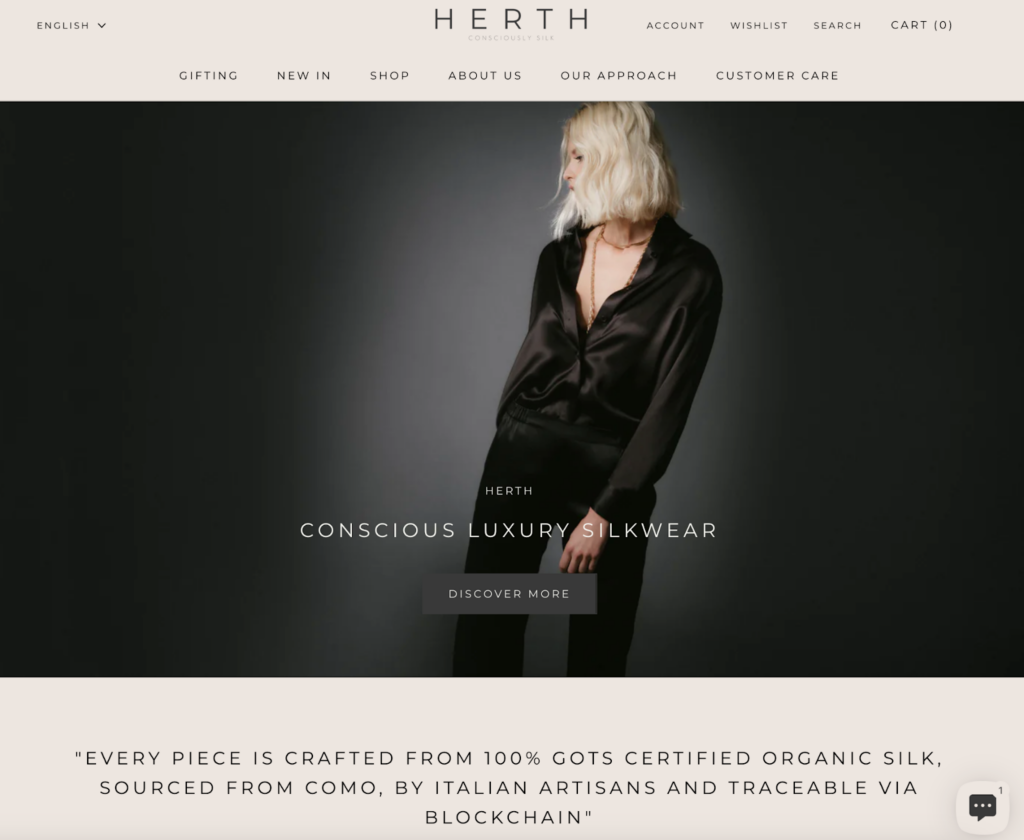
“Sustainability is at the center of everything we do. HERTH, from the design to the final product, from packaging to shipments, aims to be respectful to the environment and people, to inspire conscious buying habits.”
HERTH
🌎
How do they ensure their sustainability?
HERTH promotes sustainability by sourcing eco-friendly materials for their garments and packaging. In particular, they source exclusively carbon-neutral mulberry silk certified by the Global Organic Textile Standard (GOTS). The dyeing and printing processes that the silk is subject to are also GOTS-certified, meaning no harmful chemical substances are used during these manufacturing steps. They also use low-impact dyes in all their products. Regarding packaging, HERTH uses boxes made in Italy and tissue paper from recycled and responsibly sourced FSC-certified materials. Their cardboard tags are FSC-certified, uncoated, and 100% recycled, while their polyester labels are made with 100% recycled content, certified by the Global Recycled Standard. Their entire supply chain, from material sourcing to garment handcrafting, happens in Italy, with relatively short transportation distances, reducing carbon emissions. Once finished, their products are shipped using carbon-neutral services, meaning that the transport-related carbon emissions are offset through external climate protection projects.
🌐
How do they ensure their ethics?
HERTH ensures their ethics by making sure their whole supply chain is traceable. The blockchain technology in the QR codes found on their labels and tags enables consumers to see a full list of their suppliers, their certifications, their silk fabrics, and their production. Every person involved in their production process is assured a fair living wage and comfortable working conditions. Additionally, they use GOTS-certified silk, safeguarding the environment and its animals. The silkworms used for their silk are fed organic mulberry leaves and grown biodynamically without synthetic agrochemicals. They are allowed to fully develop and continue their life after leaving the cocoon, unlike the cruel practice in conventional silk manufacturing involving cocoons being boiled to prevent the moths from breaking the silk filament as they emerge.
🤝
Are they part of any giving-back programs?
HERTH partners with 1% for the Planet to donate 1% of their total annual sales to, as the name suggests, support the planet.
🛍️
What is their product range?
- Best for: womenswear
- Product range: bras, T-shirts, tops, shirts, pants, dresses, bodysuits, underwear, accessories
- Price range: $$$
- Size range: XS–XXL
Kings of Indigo: Clean Denim Jeans – Quality Wear for the Next Era
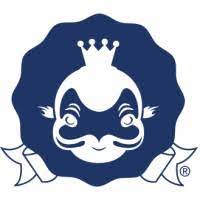
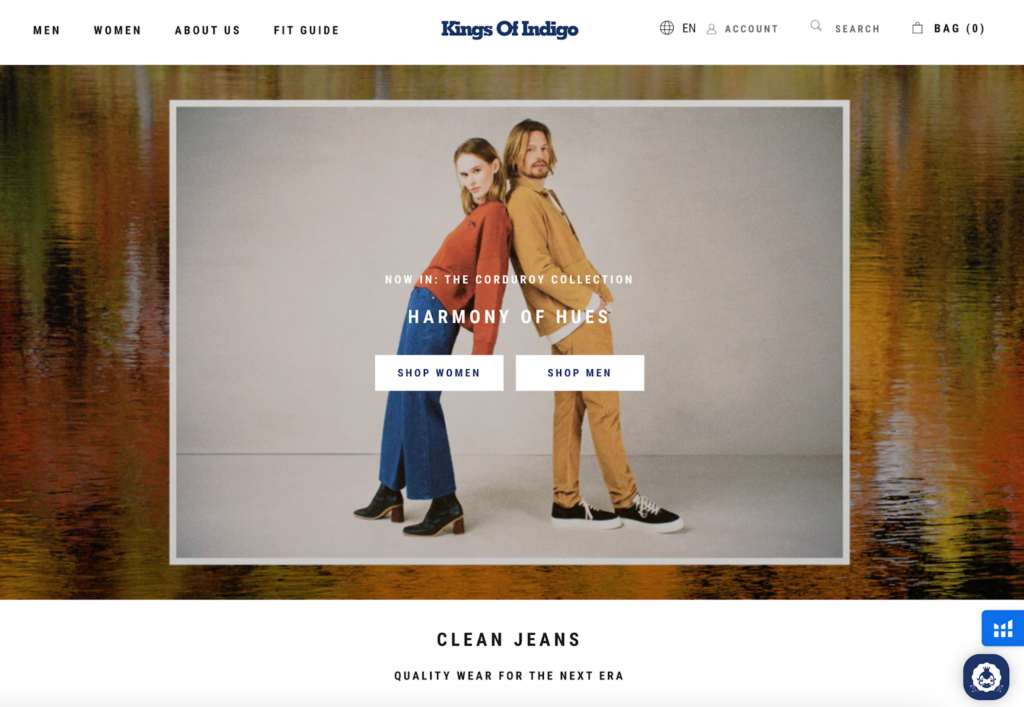
“Our commitment to the cause has a 360 approach – we leave no stone unturned.”
Kings of Indigo
🌎
How do they ensure their sustainability?
Kings of Indigo prioritizes the use of planet-friendly materials, including recycled fabrics, organic cotton, hemp, linen, and TENCELTM. Additionally, they focus on repairing, recycling, reusing, and upcycling to reduce waste. 20% of their denim apparel is made out of 100% GRS-certified recycled materials. Kings of Indigo also strives to reduce water usage during manufacturing and in consumers’ homes. 60% of their denim jeans collection has a low water impact, according to Jeanologia’s Environmental Impact Measuring (EIM). They also offer garments treated with Polygiene® and LABFRESH. These treatments help clothes stay fresh longer and act as a repellent against stains and odor, reducing the need for frequent washing and drying in consumers’ homes. Additionally, Kings of Indigo aims to have clean transport, delivering their clothes exclusively by boats and trucks. Most importantly, Kings of Indigo offers customers complete transparency about the journey of their products, from cotton to consumer. They also use Retraced technology, which maps out their full supply chain, ruling out any and all greenwashing.
🌐
How do they ensure their ethics?
Kings of Indigo ensures their ethical and responsible production by building long-term relationships with carefully selected and valued suppliers. They also uphold their suppliers to their Code of Conduct, which covers the ILO’s Four Fundamental Freedoms principles. All direct suppliers have a valid social audit in place, including Amfori BSCI, SEDEX SMETA, or Fair Wear Foundation.
🤝
Are they part of any giving-back programs?
Kings of Indigo is not known to be part of any giving-back programs.
🛍️
What is their product range?
- Best for: menswear, womenswear,
- Product range: shirts, denim, dresses, pants, jackets, blazers, T-shirts, shorts
- Price range: $$
- Size range: XS–XXL
The Ethical Silk Company: European Silk Clothing and Bedding Made Ethically and Eco-Consciously
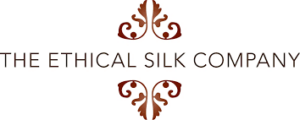
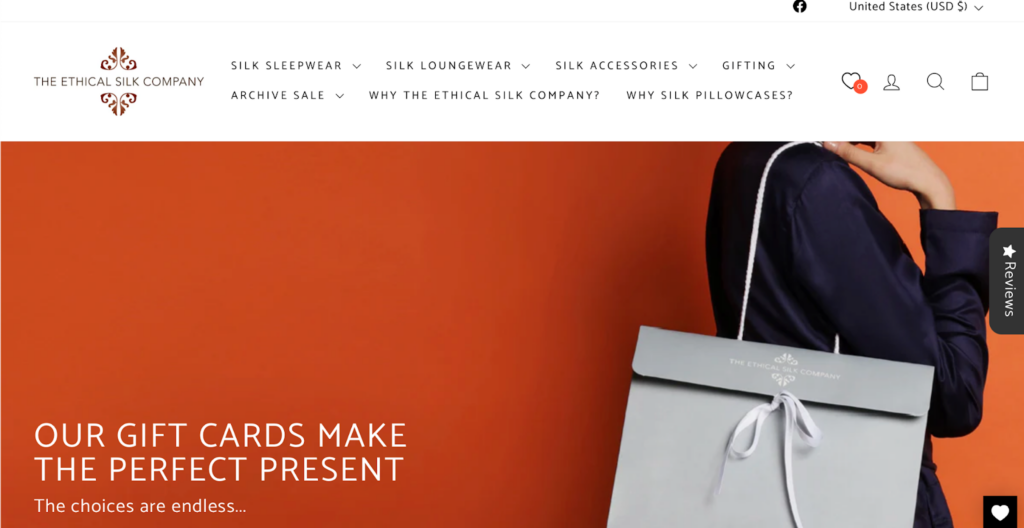
“Embracing this natural fabric (silk), our products combine a love for quality goods and sustainable practices as luxury and practicality are celebrated and embodied.”
The Ethical Silk Company
🌎
How do they ensure their sustainability?
The Ethical Silk Company ensures sustainability by minimizing waste, using low-impact dyes, and recycling process water. They avoid large inventory and associated waste by keeping the production runs short and only repeating the runs when demand dictates. Old stock is repurposed into smaller items, so each piece of silk is carefully utilized. Patterns are placed on fabrics carefully to keep wastage minimal during production. During the dyeing step of manufacturing, the brand focuses on lowering the environmental impact by eliminating high-impact AZO dyes. Additionally, all water used is treated with a water filtration system to remove the dye residue and is recycled for fabric washing. Their manufacturing partner also has a rainwater catchment system to use in fabric processing. When the season allows (meaning there is no monsoon), their silk can be block printed by hand and left to dry naturally outside, saving process energy and lowering carbon emissions. Lastly, The Ethical Silk Company sources responsible packaging for their silk products, including compostable, corn-based clear bags from Ecoland, recycled and recyclable mailers from Lil Packing, and tissue paper wrapping.
🌐
How do they ensure their ethics?
The Ethical Silk Company works with a Fair Trade tailoring unit to make their products, ensuring fair labor standards, including but not limited to clean and safe working conditions, payment of a living wage, no child labor, and no discrimination. Regarding animal welfare, The Ethical Silk Company exclusively sources mulberry silk extracted from a cocoon after the moth has left it, as opposed to the cruel practice in conventional silk manufacturing in which the cocoons are boiled to prevent the moths from breaking the silk filament as they emerge.
🤝
Are they part of any giving-back programs?
Since their inception, The Ethical Silk Company has committed to donating 10% of their profits to charitable causes. Currently, their charities of choice are Jeevan Jyothi AIDS Centre in Theni, India, which works to support those living with HIV and AIDS, and Focus Ireland, a charity preventing people from becoming, remaining, or returning to homelessness.
🛍️
What is their product range?
- Best for: kidswear, menswear, womenswear
- Product range: sleepwear, loungewear, tops, pants, slips, pajamas, robes
- Price range: $$$
- Size range: XS–XL
Kuyichi: Made-To-Last, Timeless Denim Clothing Items From a Dutch Brand
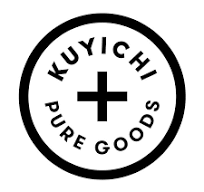
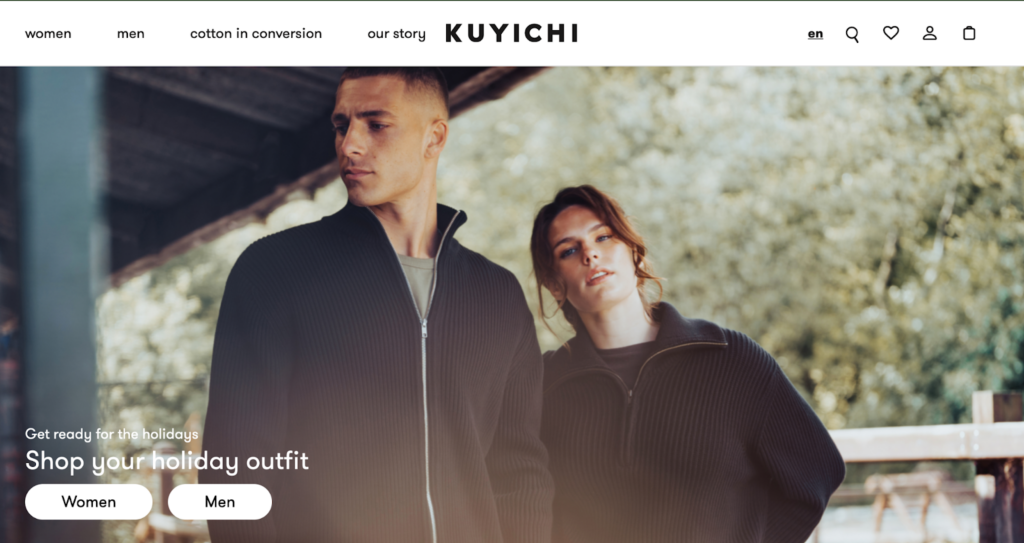
“At Kuyichi we take great care in the design of our pure goods focusing on the development of timeless products that can become your favourite. Not only do they have to stand the continuous change of trends, but they should also be worn until they tear. We choose high-quality materials and work on the longevity of our jeans constantly to achieve this. ”
Kuyichi
🌎
How do they ensure their sustainability?
Kuyichi’s sustainability efforts start with sourcing a high proportion of low-impact materials. They prioritize organic fibers, including GOTS-certified cotton, linen, and hemp, as well as recycled fibers, including recycled cotton, recycled polyester, and recycled spandex (LYCRA® T400® EcoMade). Additionally, Kuyichi uses responsibly made, circular, regenerated cellulose fibers (lyocell and modal) from Lenzing. Further down the life-cycle in the manufacturing stage, Kuyichi reduces their environmental impacts by using renewable energy in their supply chain and employing low-impact washing techniques like laser, ozone, and e-flow machinery. They also avoid fabric waste during production by either increasing production quantities or using leftovers in a different style. At the end of a Kuyichi product’s life, consumers can either hand it to the Kuyichi x Indigo Ravens shop to be reworked into other pieces or mail it back to Kuychi to be repaired, refurbished, and sold again. Their Give-Back Program offers store credit for the returns of Kuyichi items. Lastly, they offset their carbon emissions by partnering with the Climate Neutral Group.
🌐
How do they ensure their ethics?
Kuyichi is a member of the Fair Wear Foundation and has annual brand performance checks by the organization. They also pledge transparency in their supply chain and submit the list of their suppliers on Open Supply Hub. They monitor health and safety issues by visiting all of their suppliers responsible for their final stage of production. Additionally, their Supplier Code of Conduct covers all of the ILO’s Fundamental Principles and Rights at Work.
🤝
Are they part of any giving-back programs?
Instead of holding sales on Black Friday, Kuyichi donates a percentage of their sales to good causes. In 2022, they donated 20% of the Black Friday Weekend’s revenue to their local Utrecht food bank (voedselbank).
🛍️
What is their product range?
- Best for: womenswear, menswear
- Product range: jeans, pants, T-shirts, shirts, sweaters, knitwear, skirts, shorts, dresses, jackets, accessories
- Price range: $$
- Size range: XS–XL
Anekdot: Uncycled Lingerie Made With Surplus Fabrics /cha
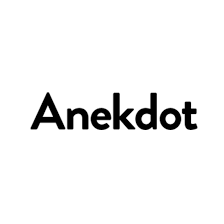
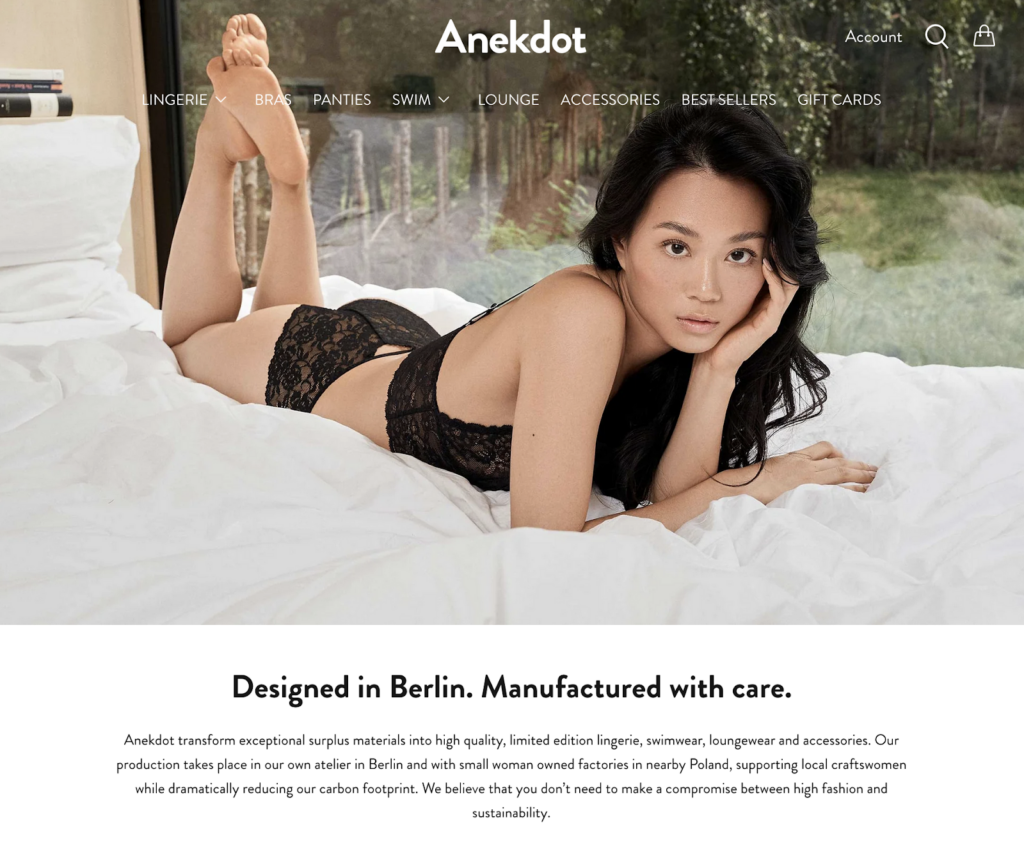
“We source our superb materials from production leftovers, end of lines, offcuts, deadstock and vintage trimmings turning them into something beautiful and meaningful for your everyday life.”
Anekdot
🌎
How do they ensure their sustainability?
Anekdot ensures their sustainability by upcycling textile materials, driving textile waste toward zero, and promoting slow, considerate fashion practices. They source materials for their apparel from production leftovers, end-of-lines, offcuts, deadstock, and vintage trimmings. For example, their Full Moon Longline Bralette is made with 90% upcycled nylon and 10% upcycled spandex, sourced from surplus in Italy. For the packaging, they recycled paper and compostable mailers that are carbon-negative, biodegradable, and partly made from corn starch. No plastics whatsoever! Secondly, Anekdot sources their materials first and designs later to maximize fabric use. They cut around small defects and create their patterns in a way that minimizes offcuts, striving for zero-waste production. Small textile scraps are used to make small accessories, special patchwork projects, and pilling for pillows. Lastly, they set an example of boycotting fast fashion by operating a made-to-order system, making their apparel seasonless, and using Black Friday to shed light on the consequences of short-lived impulse purchases and consumption from mass-producing, cheap fashion brands.
🌐
How do they ensure their ethics?
Anekdot visits their suppliers regularly. Their manufacturing partners are located in the EU, a low/medium-risk region for labor abuse.
🤝
Are they part of any giving-back programs?
Anekdot donates their textile surplus to art and education refugee projects at Tempelhof Airport and S27. During the Black Friday week of 2020, they donated 10% of sales to Drip by Drip to install bio-sand filters for communities in Bangladesh to access clean drinking water.
🛍️
What is their product range?
- Best for: womenswear
- Product range: swimwear, bra tops, underpants, loungewear, accessories
- Price range: $$$
- Size range: XS–XL
Why Is It Important to Buy Products Made of More Sustainable Fabrics
It is important to buy products made of more sustainable fabrics because a sustainable textile industry has a lower carbon footprint, helps save natural resources, and is better for forests, animals, and humans.
Buying Sustainable Fabrics Reduces Your Carbon Footprint
The production of clothing and footwear is estimated to contribute 10% of global greenhouse gas emissions—more than all international flights and shipping combined. If the fashion industry were a country, it would be the fourth largest emitter of carbon dioxide.
One way to reduce the carbon footprint of the clothes you buy is to opt for sustainable fabrics. Sustainable fabrics, which are often made with natural or recycled fibers, have relatively low carbon footprints compared to petroleum-based fabrics. For example, organic cotton made in the US has a carbon footprint of 2.35 kg CO2 (per ton of spun fiber)—a quarter of polyester’s carbon footprint.
Buying Sustainable Fabrics Reduces Demand For Natural Resources and Waste Management
The textile industry uses water and land to grow cotton and other fibers. It is estimated that 79 billion cubic meters of water were used for the sector worldwide in 2015. For example, producing a single cotton T-shirt requires as much water as one person drinks for 2.5 years (2,700 liters of fresh water).
Worse yet, the textile economy is vastly more linear than circular: the largest amount of resources used in clothes ended up in landfills (instead of being recycled to remake clothes). According to a report by the Ellen MacArthur Foundation,
- Less than 3% of materials used in the textile economy in 2015 came from recycled sources.
- In other words, more than 97% of resources used in making clothes are newly extracted.
When clothing items are disposed of within a short period of time—under a year in the case of half of the fast fashion clothes—the natural systems that provide raw materials for fabrics don’t have enough time to recover and regenerate, which could lead to ecological breakdown.
Sustainable fabrics are made with less water and emissions while lasting longer:
- Because they are durable, you don’t need to buy new clothes too often.
- Thus, you help reduce the pressure to extract more resources for making new items.
Similarly, making and consuming sustainable fabrics made with recycled materials reduces the demand for virgin materials while helping tackle waste management.
Buying Sustainable Fabrics Encourages Sustainable Management of Forests
Sustainable natural fiber fabrics are made with raw materials from forests and plantations that are sustainably managed, such as complying with FSC standards.
When you buy sustainable natural fiber fabrics, you discourage unsustainable forestry practices like illegal logging. You can help reduce deforestation, biodiversity loss, and the effects of climate change.
Buying Sustainable Fabrics Encourages Fairer Treatment of Animals
The fashion industry is rife with animal mistreatment when it comes to making animal-based fabrics like wool or silk. Every year, billions of animals suffer and die for clothing and accessories.
Buying sustainable vegan alternatives can help to reduce the pressure on raising more and more animals to meet the demand for animal-based fabrics while sacrificing their well-being and lives.
Suppose you have to buy fabrics made with, for example, wool or silk; make sure you only choose brands committed to cruelty-free products. In that case, you help advocate better treatments for animals raised within the textile industry.
Using Sustainable Fabrics Encourages Fairer Treatment of Textile Workers
Recent statistics from UNICEF estimated as many as 170 million child laborers worldwide, many of whom were engaged in some form of work in the textile industry. They don’t get paid minimum wages and often work long hours.
When you buy sustainable fabrics from brands transparent about the working conditions at their factories, you discourage the use of child labor and help promote better working conditions for textile workers.
How Can You Generally Buy More Sustainable Fabrics
The key to sustainably buying fabrics is to check on relevant environmental and original certifications.
For natural fabrics:
- Global Organic Textile Standard (GOTS): A globally recognized certification system that ensures a certain threshold of organic content has been met. It covers manufacturing, packaging, labeling, transportation, and distribution (but not what happens in the fields where crops are grown).
- USDA Certified Biobased Product: The USDA BioPreferred® Certification is a voluntary certification offered by the United States Department of Agriculture. The certification identifies products made from plants or other renewable materials.
- Ecolabel: Ecolabel is the official European Union voluntary label recognized worldwide for certified products with a guaranteed, independently verified low environmental impact. The label requires high environmental standards throughout the entire life-cycle: from raw material extraction through production and distribution to disposal. It also encourages companies to develop innovative, durable, easy-to-repair, and recyclable products.
For natural fiber semi-natural/semi-synthetic fabrics:
- Forest Stewardship Council: An FSC certification ensures that the wood (or wood-like material) comes from responsibly managed forests that provide environmental, social, and economic benefits.
There are two types of FSC Certification:- FSC Forest Management Certification, with a focus on the origin of the wood—the forest.
- FSC Chain of Custody Certification, which focuses on the path from the forest to the customer’s home.
- Program for Endorsement of Forest Certification: PEFC’s approaches to sustainable forest management are in line with protecting the forests globally and locally and making the certificate work for everyone. Getting a PEFC certification is strict enough to ensure the sustainable management of a forest is socially just, ecologically sound, and economically viable but attainable not only by big but small forest owners.
For recycled fabrics:
- Recycled Claim Standard (RCS): The Textile Exchange RCS was originally developed as an international, voluntary standard that sets requirements for third-party certification of Recycled input and chain of custody.
- The Global Recycled Standard (GRS): The Global Recycled Standard (GRS) is an international, voluntary, full product standard that sets requirements for third-party certification of Recycled Content, chain of custody, social and environmental practices, and chemical restrictions. It can be used for any product with more than 20% recycled material.
For all types of fabrics:
- STeP by OEKO-TEX®: STeP by OEKO-TEX® is an independent certification system for brands, retailers, and manufacturers from the textile and leather industry. It communicates organizational environmental measures, including reducing carbon footprint and water usage.
- OEKO-TEX® Standard 100: OEKO-TEX® labels aim to ensure that products pose no risk to human health (i.e., containing banned chemicals).
Some certifications that are signaling brands’ efforts toward lowered environmental impacts and a circular economy are:
- B Corp Certification: The label B Corp is a certification reserved for for-profit companies. Certified holders are assessed on their social and environmental impacts.
- Cradle2Cradle certification: Cradle2Cradle provides a standardized approach to material circularity. It assesses whether products have been suitably designed and made with the circular economy in mind covering five critical categories: material health, material reuse, renewable energy and carbon management, water stewardship, and social fairness.
Final Thoughts
The geographical journey of garments often plays a big role in their sustainability because it affects many social and ecological aspects of a product’s life-cycle, from the treatment of textile workers to the use of chemicals. Thus, it is important to keep the origin of your garments in mind when you make your next purchase.
By purchasing clothes from European brands that commit to sustainability, you support their mission to create a fairer and less harmful textile industry for all lives on Earth.
Here is the list (again) of the most sustainable European clothing brands:
- Organic Basics
- Ecoalf
- Rifò
- Underprotection
- MUD Jeans
- ARMEDANGELS
- ZEROBARRACENTO
- Nudie Jeans
- ASKET
- the Blue suit
- VAUDE
- Tripulse
- Dedicated
- Opera Campi
- Iron Roots
- HERTH
- Kings of Indigo
- The Ethical Silk Company
- Kuyichi
- Anekdot
To make your use clothing items from these European brands even more sustainable, follow these steps:
- Buy second hand, recycled, or upcycled clothes made with low-impact materials.
- Keep your clothes for as long as possible.
- At the end-of-life of your clothes, upcycle the materials to extend their usage and arrange for them to be recycled or properly disposed of.
Stay impactful,

Sources
- Science Direct: Life-cycle assessment (LCA)
- Organic Basics: Home
- Ecoalf: Home
- Rifò: Home
- Underprotection: Home
- ARMEDANGELS: Home
- ZEROBARRACENTO: Home
- Nudie Jeans: Home
- ASKET: Home
- the Blue suit: Home
- MUD Jeans: Home
- Tripulse: Home
- VAUDE: Home
- Dedicated: Home
- Opera Campi: Home
- Iron Roots: Home
- HERTH: Home
- Kings of Indigo: Home
- The Ethical Silk Company: Home
- Kuyichi: Home
- Anekdot: Home
- Organic Basics: FAQ
- Impactful Ninja: How Sustainable Are Organic Fabrics? A Life-Cycle Analysis
- Impactful Ninja: How Sustainable Are Cotton Fabrics? A Life-Cycle Analysis
- Global Organic Textile Standard: Home
- Impactful Ninja: How Sustainable Are TENCEL™ Fabrics? A Life-Cycle Analysis
- OEKO-TEX: STANDARD 100 by OEKO-TEX®
- Impactful Ninja: How Sustainable Are Recycled Wool Fabrics? A Life-Cycle Analysis
- Impactful Ninja: How Sustainable Are Recycled Cotton Fabrics? A Life-Cycle Analysis
- Impactful Ninja: How Sustainable Are Recycled Nylon Fabrics? A Life-Cycle Analysis
- Impactful Ninja: How Sustainable Are Elastane Fabrics? A Life-Cycle Analysis
- Impactful Ninja: How Sustainable Are Spandex Fabrics? A Life-Cycle Analysis
- Made2Flow: Home
- One Carbon World: Home
- B Corporation: Organic Basics
- Organic Basics: Factories
- Good On You: Brand Directory | Organic Basics
- Organic Basics: Our Impact
- Beam Impact: Home
- Ecoalf: Materials
- Ecoalf: History
- Ecoalf: DON’T THINK IT’S A UTOPIA | DISCOVER OUR 2021 SUSTAINABILITY REPORT
- Impactful Ninja: How Sustainable Are Recycled Fabrics? A Life-Cycle Analysis
- Impactful Ninja: How Sustainable Are Recycled Polyester Fabrics? A Life-Cycle Analysis
- Impactful Ninja: How Sustainable Are Recycled Cotton Fabrics? A Life-Cycle Analysis
- Impactful Ninja: How Sustainable Are Recycled Wool Fabrics? A Life-Cycle Analysis
- Impactful Ninja: How Sustainable Are Cashmere Fabrics? A Life-Cycle Analysis
- Ecoalf: History
- Ecoalf: Sustainable Report 2021 | DON’T THINK IT’S A UTOPIA
- Impactful Ninja: How Sustainable Are Natural Fabrics? A Life-Cycle Analysis
- Impactful Ninja: How Sustainable Are Linen Fabrics? A Life-Cycle Analysis
- Impactful Ninja: How Sustainable Are Kapok Fabrics? A Life-Cycle Analysis
- Bluesign®: Home
- B Corporation: Ecoalf
- Ecoalf: Code of Conduct
- Ecoalf: ECOALF foundation
- Ecoalf: Upcycling the Oceans
- Ecoalf: Because There’s No Planet B
- Ecoalf: Personas
- Rifò: Who is Rifò
- Rifò: Secondary Raw Materials
- Rifò:Rifò: Secondary Raw Materials | Recycle Cashmere
- Rifò: Secondary Raw Materials | Recycle Wool
- Rifò: Secondary Raw Materials | Recycle denim
- Rifò: Secondary Raw Materials | Recycle cotton
- Rifò: Secondary Raw Materials | Recycle silk
- Rifò: Rifò Sustainable Packaging
- Good On You: Brand Directory | Rifò
- Rifò: Sustainability Report 2022
- Rifò: Rifò’s used garment collection
- VOGUE: Boycott Black Friday
- B Corporation: Rifò
- Rifò: Code of Conduct
- International Labour Organization: Fundamental Principles and Rights at Work
- Rifò:Nei Nostri Panni | A concrete social impact project
- B Corporation: Underprotection
- Good On You: Brand Directory | Underprotection
- Impactful Ninja: How Sustainable Are Lyocell Fabrics? A Life-Cycle Analysis
- Impactful Ninja: How Sustainable Are Recycled Wool Fabrics? A Life-Cycle Analysis
- Textile Exchange: Responsible Wool Standard
- Impactful Ninja: How Sustainable Are Sheep Wool Fabrics? A Life-Cycle Analysis
- Impactful Ninja: How Sustainable Are Synthetic Fabrics? A Life-Cycle Analysis
- Underprotection: Materials
- Textile Exchange: Global Recycle Standard
- Impactful Ninja: How Sustainable Are Polyester Fabrics? A Life-Cycle Analysis
- Impactful Ninja: How Sustainable Are Nylon Fabrics? A Life-Cycle Analysis
- Impactful Ninja: How Sustainable Are Spandex Fabrics? A Life-Cycle Analysis
- Impactful Ninja: How Sustainable Are Elastane Fabrics? A Life-Cycle Analysis
- Underprotection: Packaging
- Underprotection: Repair and Rewards
- Underprotection: Wash & Care
- Underprotection: Take-back program
- Underprotection: Upcycled
- Underprotection: I Tråd Med Verden
- Underprotection: Sustainable Report 2020
- Underprotection: Production
- Underprotection: Code of Conduct
- International Labour Organization: Fundamental Principles and Rights at Work
- Worldwide Responsible Accredited Production (WRAP): Home
- Sedex: Home
- Amfori: BSCI
- Underprotection: Green Friends
- Underprotection: TREEAPP
- Underprotection: ReSea
- B Corporation: MUD Jeans
- MUD Jeans: Lease A Jeans
- Good On You: Brand Directory | MUD Jeans
- MUD Jeans: LIFE CYCLE ANALYSIS (LCA) REPORT
- MUD Jeans: Creating a world without waste
- MUD Jeans: FAQ
- MUD Jeans: SUSTAINABILITY REPORT 2022
- Impactful Ninja: How Sustainable Are Recycled Cotton Fabrics? A Life-Cycle Analysis
- Impactful Ninja: How Sustainable Are Elastane Fabrics? A Life-Cycle Analysis
- Impactful Ninja: How Sustainable Are Spandex Fabrics? A Life-Cycle Analysis
- MUD Jeans: Creating a world without waste
- MUD Jeans: Happy jean makers, better jeans
- Justdiggit: Home
- Good On You: Brand Directory | ARMEDANGELS
- ARMEDANGELS: THE JOURNEY FROM RAW MATERIAL TO PRODUCT | A T-Shirt Made from Organic Cotton
- Textile Exchange: Global Recycled Standard
- Impactful Ninja: How Sustainable Are Recycled Fabrics? A Life-Cycle Analysis
- Global Organic Textile Standard (GOTS): Home
- Textile Exchange: Responsible Wool Standard
- Impactful Ninja: How Sustainable Are Organic Wool Fabrics? A Life-Cycle Analysis
- Forest Stewardship Council: Home
- Programme for the Endorsement of Forest Certification: Home
- Impactful Ninja: How Sustainable Are Wood-Based Fabrics? A Life-Cycle Analysis
- Tencel: TENCELTM Modal Fibers
- ARMEDANGELS: THE JOURNEY FROM RAW MATERIAL TO PRODUCT | Recycling
- ARMEDANGELS: About Us
- Impactful Ninja: How Sustainable Are Modal Fabrics? A Life-Cycle Analysis
- Impactful Ninja: How Sustainable Are Lyocell Fabrics? A Life-Cycle Analysis
- Impactful Ninja: How Sustainable Are Silk Fabrics? A Life-Cycle Analysis
- Impactful Ninja: How Sustainable Are Natural Fabrics? A Life-Cycle Analysis
- Impactful Ninja: How Sustainable Are Synthetic Fabrics? A Life-Cycle Analysis
- Impactful Ninja: How Sustainable Are Recycled Wool Fabrics? A Life-Cycle Analysis
- Impactful Ninja: How Sustainable Are Recycled Cotton Fabrics? A Life-Cycle Analysis
- ARMEDANGELS: DETOX DENIM
- ARMEDANGELS: Care Guide
- ARMEDANGELS: Repair Guide
- ARMEDANGELS: RETURN YOUR OLD CLOTHES | RECYCLING WITH BENEFITS
- ARMEDANGELS: ACTION REPORT 2021
- Fair Wear Foundation: Home
- ARMEDANGELS: LIVING WAGE PROJECT
- ARMEDANGELS: Collaborations
- Doctors Without Borders: Home
- German Zero: Home
- Climate Emergency Fund: Home
- Sea-Watch: Home
- ZEROBARRACENTO: Zero Waste DNA
- Good On You: Brand Directory | ZEROBARRACENTO
- CFDA: Re.VerSo™
- Impactful Ninja: How Sustainable Are Recycled Wool Fabrics? A Life-Cycle Analysis
- Textile Exchange: Global Recycled Standard
- NewLife Yarn: Newlife™
- OEKO-TEX: STANDARD 100 by OEKO-TEX®
- MARCHI & FILDI: ECOTEC®
- Impactful Ninja: How Sustainable Are Recycled Cotton Fabrics? A Life-Cycle Analysis
- Asahi Kasei: Bemberg™
- ZEROBARRACENTO: Zerobarracento undertakes to donate 1.5% of each purchase to Fondazione Umberto Veronesi.
- Good On You: Brand Directory | Nudie Jeans
- Nudie Jeans: Nudie Jeans Sustainability Report 2022
- Nudie Jeans: Sustainability | 100% Organic Cotton
- Nudie Jeans: Sustainable Product | Repair
- Nudie Jeans: Sustainable Product | Reuse
- Nudie Jeans: Sustainable Product | Recycle
- Nudie Jeans: Re-use — Drop 17
- Nudie Jeans: We might just be the most transparent denim company in the world…
- Nudie Jeans: List of Suppliers
- Fair Wear Foundation: Home
- Fair Trade International: Small-scale Producer Organizations
- Thread Together: Home
- ASKET: The Repair Program
- ASKET: The Revival Program
- Textile Exchange: The RCS and GRS are designed to boost the use of recycled materials
- ASKET: Materials | Recycled Cashmere
- ASKET: Materials | Recycled Wool
- ASKET: Materials | Recycled Synthetics
- ASKET: The Care Program
- ASKET: Materials | Organic Cotton
- ASKET: Materials | Linen
- ASKET: Materials | Lyocell
- ASKET: Full Transparency
- ASKET: TRACKING HOW WE FOLLOW OUR PRINCIPLES
- Textile Exchange: Responsible Wool Standard
- ASKET: Materials | Traceable Merino
- Good On You: Brand Directory | the Blue suit
- the Blue suit: Planet
- Global Organic Textile Standard: Home
- Impactful Ninja: How Sustainable Are Denim Fabrics? A Life-Cycle Analysis
- Duvalli: SeaCell™
- the Blue suit: About Us
- OEKO-TEX: STANDARD 100 by OEKO-TEX®
- the Blue suit: Origin
- Retraced: Home
- the Blue suit: Cradle to Cradle Certified
- VAUDE: CSR Report | Produce Philosophy
- Good On You: Brand Directory | VAUDE
- VAUDE: CSR Report | Don’t wash any more than necessary
- VAUDE: CSR Report | Repair Don’t Replace
- VAUDE: CSR Report | Second-hand and donations
- VAUDE: CSR Report | Upcycling
- VAUDE: CSR Report | Material Policy
- Impactful Ninja: How Sustainable Are Merino Wool Fabrics? A Life-Cycle Analysis
- VAUDE: CSR Report | Wool
- Textile Exchange: Responsible Wool Standard
- Global Organic Textile Standard: Home
- Impactful Ninja: How Sustainable Are Organic Wool Fabrics? A Life-Cycle Analysis
- Bluesign: Home
- Green Button: Home
- Science Based Targets (SBTi): Home
- VAUDE: CSR Report | Climate Footprint
- VAUDE: CSR Report | Climate-Neutral Business
- VAUDE: CSR Report | Our Producers
- FairWertung: Home
- CHANGE CLIMATE: Tripulse is Climate Neutral Certified
- Tripulse: Materials & Trims
- Tripulse: WE’RE CLIMATE NEUTRAL CERTIFIED FOR 2023!
- Tripulse: Climate Action
- Good On You: Brand Directory | Tripulse
- Impactful Ninja: How Sustainable Are TENCELTM Fabrics? A Life-Cycle Analysis
- ASAHI KASEI: ROICA
- THE SLOW LABEL: The problem with Elastane: ROICA™ V550 is an alternative
- Impactful Ninja: How Sustainable Are Spandex Fabrics? A Life-Cycle Analysis
- Impactful Ninja: How Sustainable Are Elastane Fabrics? A Life-Cycle Analysis
- Bluesign: Home
- European Union: REACH Regulation
- Impactful Ninja: How Sustainable Are Organic Cotton Fabrics? A Life-Cycle Analysis
- Tripulse: Design Philosophy
- Tripulse: Packaging and transportation
- Tripulse: OUR WAY TO ZERO WASTE
- Tripulse: ZeroWaste Shop
- Global Organic Textile Standards: Home
- Tripulse: Ethical & transparent supply chain
- Tripulse: WHY WE PLANT TREES WITH EVERY PRODUCT PURCHASED
- One Tree Planted: Home
- Good On You: Brand Directory | Dedicated
- Dedicated: Fabrics | Organic cotton
- Fairtrade: Home
- Global Organic Textile Standard: Home
- Dedicated: Fabrics | Hemp
- Dedicated: Fabrics | TENCELTM Lyocell
- Dedicated: Fabrics | Recycled Wool
- Dedicated: Fabrics | Recycled Polyester
- Dedicated: Sustainability Report 2022
- ClimatePartner: Home
- Dedicated: Suppliers
- Dedicated: Our Story
- Textile Exchange: Global Recycle Standard
- SA International: SA8000
- WRAP Compliance: Home
- SEDEX: Home
- Dedicated: Code of Conduct
- International Labour Organization: Fundamental Principles and Rights at Work
- Impactful Ninja: How Sustainable Are Hemp Fabrics? A Life-Cycle Analysis
- Opera Campi: RESPONSIBILITY
- Britannica: Hemp
- Opera Campi: SWEATER ZERO – The Carbon Negative, Undyed Hemp Sweater
- Opera Campi: OUR STORY
- Science Direct: Cradle-to-Gate Assessment
- Opera Campi: MISSION
- Good On You: Brand Directory | Opera Campi
- Good On You: Brand Directory | Iron Roots
- Impactful Ninja: How Sustainable Are Cotton Fabrics? A Life-Cycle Analysis
- Impactful Ninja: How Sustainable Are Hemp Fabrics? A Life-Cycle Analysis
- Impactful Ninja: How Sustainable Are Lyocell Fabrics? A Life-Cycle Analysis
- Lenzing: Home
- Impactful Ninja: 10 Most Sustainable Fabrics: The Full Life-Cycle Analysis
- Iron Roots: Healthy Sportswear
- Iron Roots: Fair Production
- Iron Roots: FAQ
- Iron Roots: SUSTAINABILITY POLICY
- Iron Roots: Iron Roots x Sea Shepherd Wood T-shirt
- Impactful Ninja: How Sustainable Are Silk Fabrics? A Life-Cycle Analysis
- HERTH: OUR GOTS CERTIFIED ORGANIC SILK AND THE NATURAL BENEFITS OF WEARING SILK
- Global Organic Textile Standard: Home
- Good On You: Brand Directory | HERTH
- HERTH: SUSTAINABILITY
- Textile Exchange: The RCS and GRS are designed to boost the use of recycled materials.
- HERTH: HOW WE USE BLOCKCHAIN TO TRACE THE SUPPLY CHAIN
- HERTH: CONTEMPORARY ITALIAN CRAFTSMANSHIP AND MADE IN ITALY
- 1% for the Planet: Home
- Kings of Indigo: 5 Pillars of Sustainability | Planet-Friendly Materials
- Impactful Ninja: How Sustainable Are Recycled Fabrics? A Life-Cycle Analysis
- Impactful Ninja: How Sustainable Are Organic Cotton Fabrics? A Life-Cycle Analysis
- Impactful Ninja: How Sustainable Are Hemp Fabrics? A Life-Cycle Analysis
- Impactful Ninja: How Sustainable Are Linen Fabrics? A Life-Cycle Analysis
- Impactful Ninja: How Sustainable Are TENCELTM Fabrics? A Life-Cycle Analysis
- Kings of Indigo: 5 Pillars of Sustainability | Waste Conscious
- Kings of Indigo: 5 Pillars of Sustainability | Less Water Use
- Jeanologia: Environmental Impact Measuring (EIM)
- Kings of Indigo: Kings Of Indigo X LABFRESH
- Kings of Indigo: 5 Pillars of Sustainability | Clean transport
- Retraced: Home
- Kings of Indigo: 5 Pillars of Sustainability | Responsible Production
- Good On You: Brand Directory | Kings of Indigo
- Amfori: BSCI
- SEDEX: SMETA Audit
- Fair Wear Foundation: Home
- Impactful Ninja: How Sustainable Are Silk Fabrics? A Life-Cycle Analysis
- Good On You: Brand Directory | The Ethical Silk Company
- The Ethical Silk Company: OUR STORY
- The Ethical Silk Company: Shipping & Returns
- Lil Packing: Home
- Mehra Shaw: Fair Trade Standards
- Focus Ireland: Home
- Impactful Ninja: How Sustainable Are Organic Fabrics? A Life-Cycle Analysis
- Impactful Ninja: How Sustainable Are Recycled Fabrics? A Life-Cycle Analysis
- Good On You: Brand Directory | Kuyichi
- Kuyichi: PURE MATERIALS | PURE PROCESS | CERTIFICATES & INITIATIVES
- Global Organic Textile Standard: Home
- Impactful Ninja: How Sustainable Are Cotton Fabrics? A Life-Cycle Analysis
- Impactful Ninja: How Sustainable Are Linen Fabrics? A Life-Cycle Analysis
- Impactful Ninja: How Sustainable Are Hemp Fabrics? A Life-Cycle Analysis
- Impactful Ninja: How Sustainable Are Recycled Cotton Fabrics? A Life-Cycle Analysis
- Impactful Ninja: How Sustainable Are Recycled Polyester Fabrics? A Life-Cycle Analysis
- Impactful Ninja: How Sustainable Are Spandex Fabrics? A Life-Cycle Analysis
- Kuyichi: T400 EcoMade
- Kuyichi: TENCEL™ X REFIBRA™: LENZING’S CIRCULAR APPROACH TO RECYCLED FIBRE
- Kuyichi: TENCEL™ LYOCELL: THE BIODEGRADABLE FIBRE YOU NEED TO DISCOVER
- Kuyichi: TENCEL™ MODAL FIBRES: VERY SOFT AND BETTER FOR THE EARTH
- Kuyichi: FAQ & Contact Information
- Kuyichi: SUSTAINABILITY REPORT 2022
- Kuyichi: ABOUT THE END-OF-LIFE OF YOUR PURE GOODS
- TRENDS ARE CIRCULAR: KUYICHI
- Climate Neutral Group: Home
- Kuyichi: Transparency Pledge
- Open Supply Hub: Home
- International Labour Organization: Fundamental Principles and Rights at Work
- Anekdot: About Us
- Anekdot: Full Moon Longline Bralette
- Good On You: Brand Directory | Anekdot
- Impactful Ninja: How Sustainable Are Nylon Fabrics? A Life-Cycle Analysis
- Impactful Ninja: How Sustainable Are Spandex Fabrics? A Life-Cycle Analysis
- S27: Home
- Drip By Drip: Home
- European Parliament: The impact of textile production and waste on the environment (infographic)
- Science Direct: The challenge of “Depeche Mode” in the fashion industry – Does the industry have the capacity to become sustainable through circular economic principles, a scoping review
- Science Direct: Carbon Footprint of Textile and Clothing Products
- European Parliament: Environmental impact of the textile and clothing industry
- European Parliament: What if fashion were good for the planet?
- Ellen MacArthur Foundation: A New Textiles Economy: Redesigning fashion’s future
- McKinsey: Style that’s sustainable: A new fast-fashion formula
- Forest Stewardship Council: Home
- Our World in Data: Deforestation and Forest Loss
- Our World in Data: Renewable Energy
- Peta: Animals Used For Clothing
- The Guardian: Child labour in the fashion supply chain
- Impactful Ninja: How Sustainable Are Natural Fabrics? A Life-Cycle Analysis
- Global Organic Textile Standard (GOTS): Home
- BioPreferred: WHAT IS THE BIOPREFERRED PROGRAM?
- European Commission: Environment | EU Ecolabel
- Impactful Ninja: How Sustainable Are Semi-Natural/Semi-Synthetic Fabrics? A Life-Cycle Analysis
- Forest Stewardship Council
- FSC Forest Management Certification
- FSC Chain of Custody Certification
- Textile Exchange: The RCS and GRS are designed to boost the use of recycled materials
- Program for Endorsement of Forest Certification
- Impactful Ninja: How Sustainable Are Recycled Fabrics? A Life-Cycle Analysis
- Textile Exchange: Recycled Claim Standard
- Textile Exchange: Global Recycled Standard
- OEKO-TEX: Certification according to STeP by OEKO-TEX®
- OEKO-TEX: STANDARD 100 by OEKO-TEX®
- B Corp Certification: Home
- C2CCertified: Home


